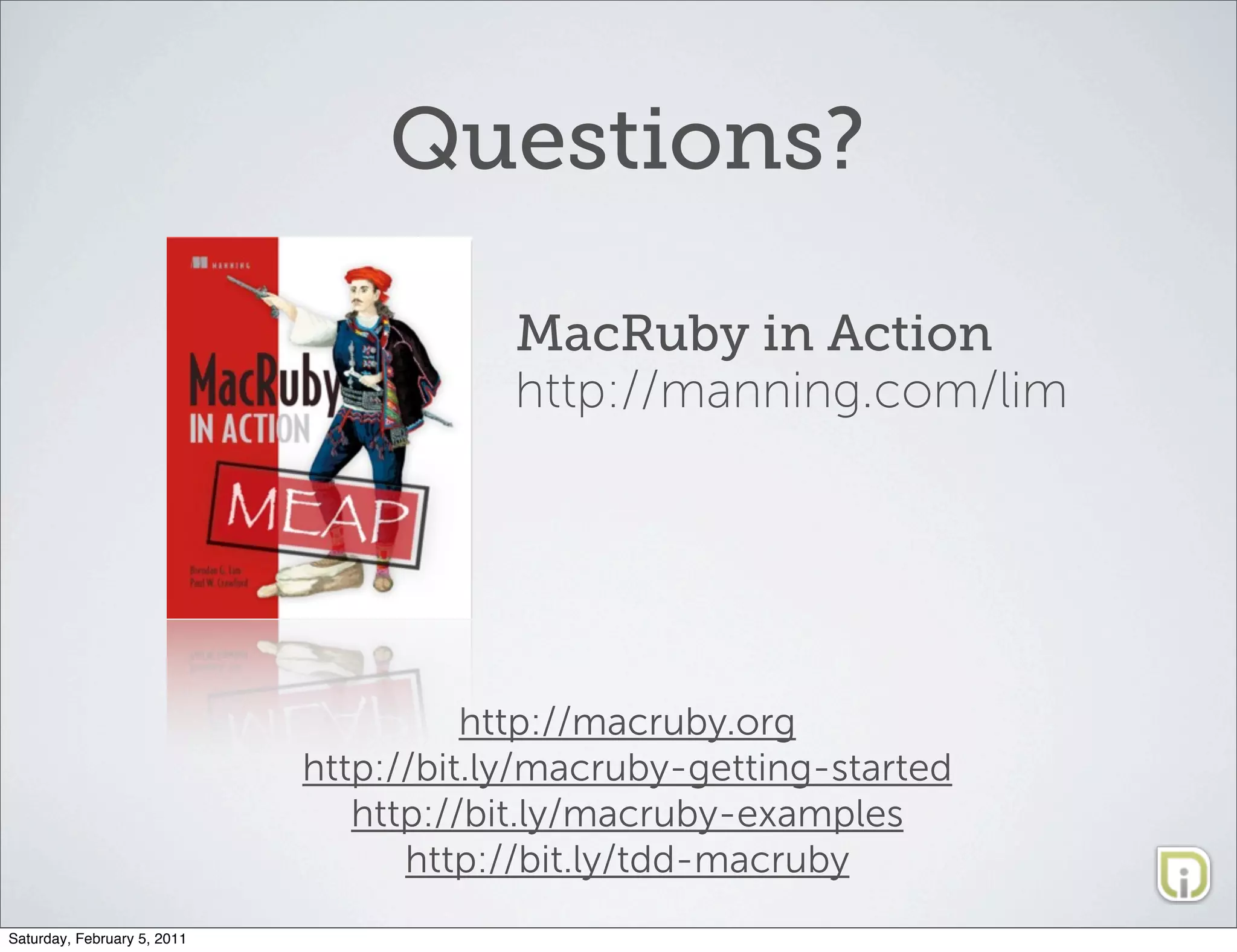This document provides an outline for a presentation on developing Cocoa applications with MacRuby. Some key points include:
- MacRuby allows developing desktop applications on Mac OS X using the Ruby language while still leveraging the Cocoa frameworks.
- It provides a way to write Ruby code that interacts directly with Objective-C and Cocoa with no translation layer, unlike RubyCocoa.
- Examples are shown of how basic Ruby constructs like strings and arrays map directly to their Objective-C counterparts like NSString and NSMutableArray in MacRuby.
- Tools like Xcode, Interface Builder, and Instruments can still be used for MacRuby application development. The HotCocoa library provides a simpler way to build user
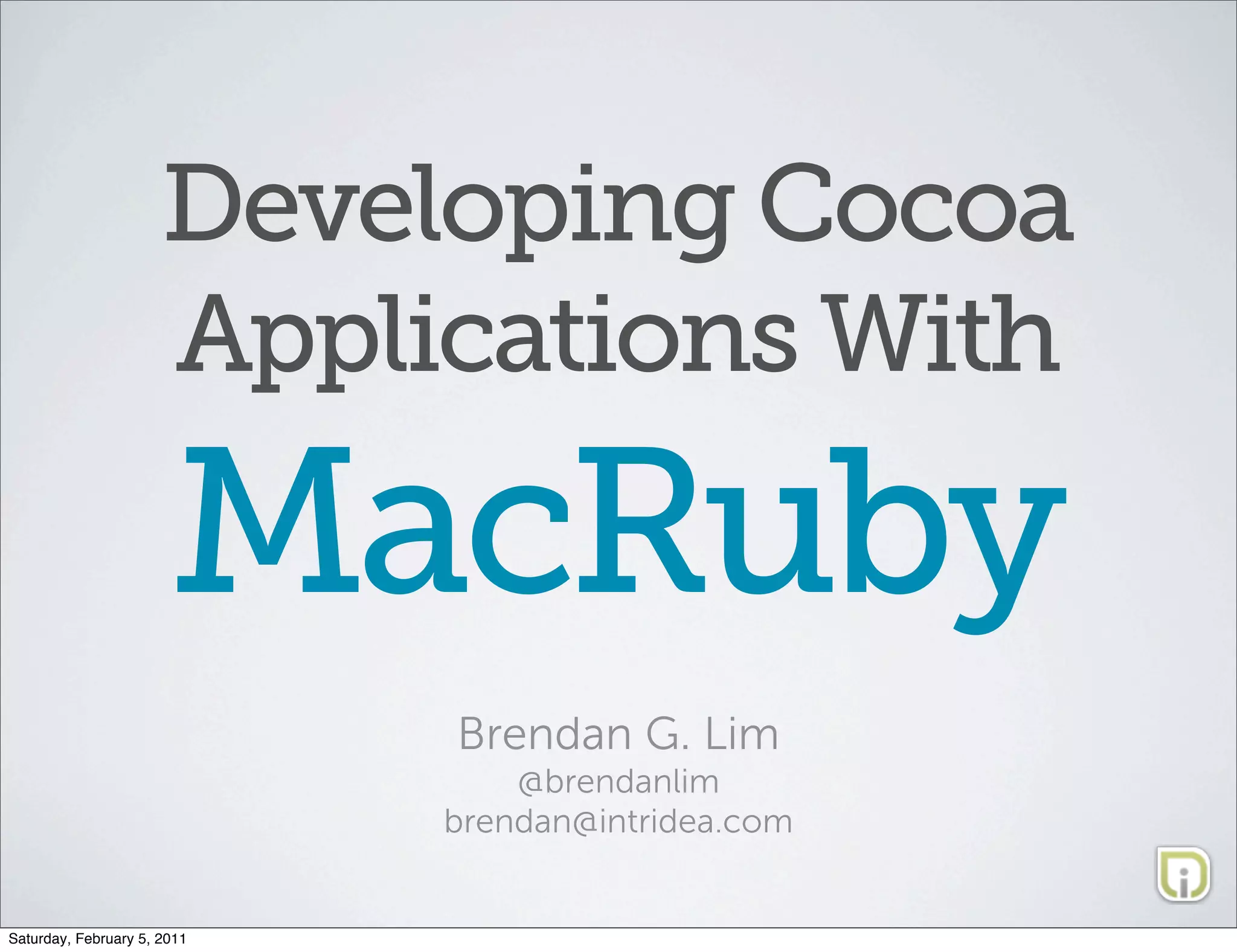
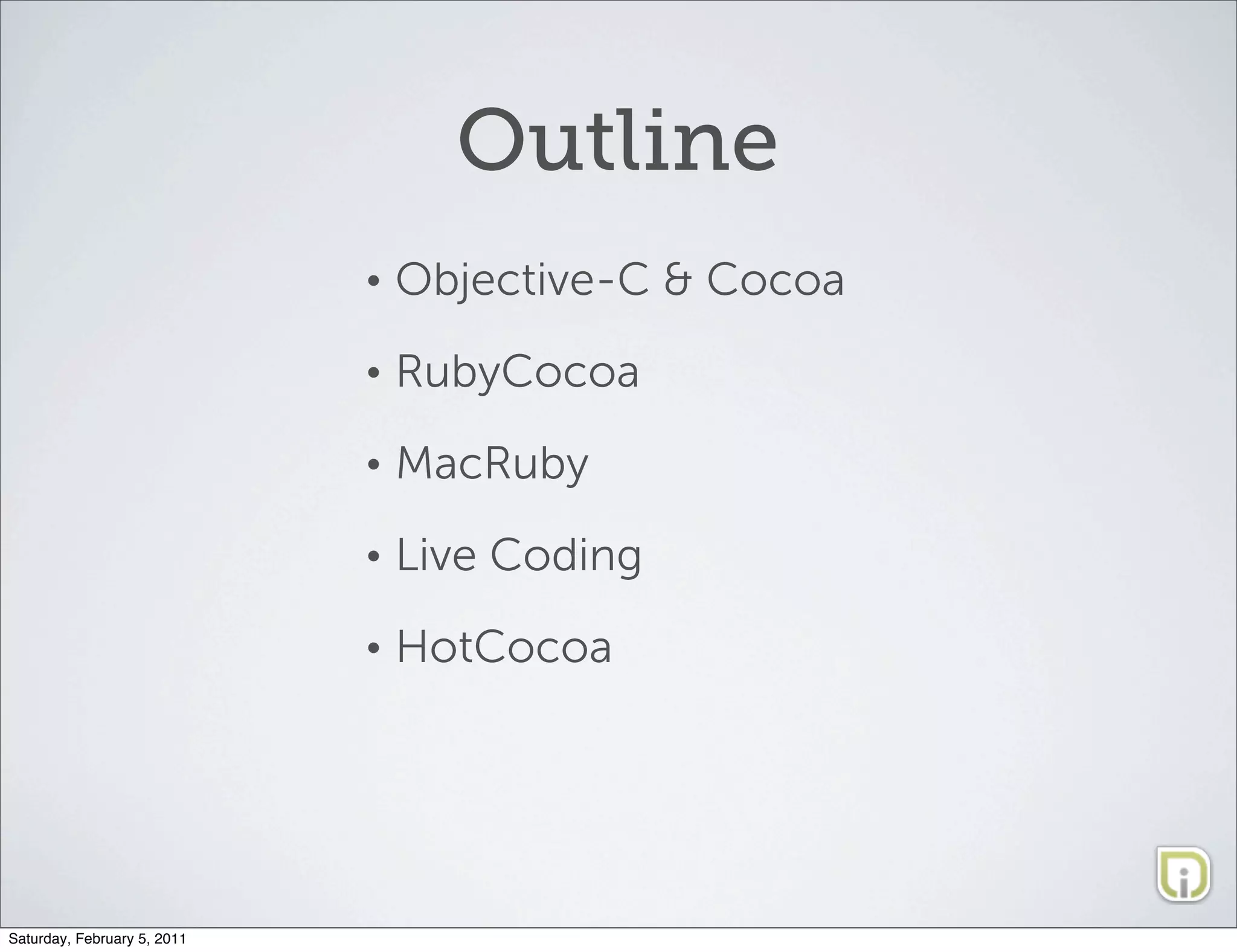
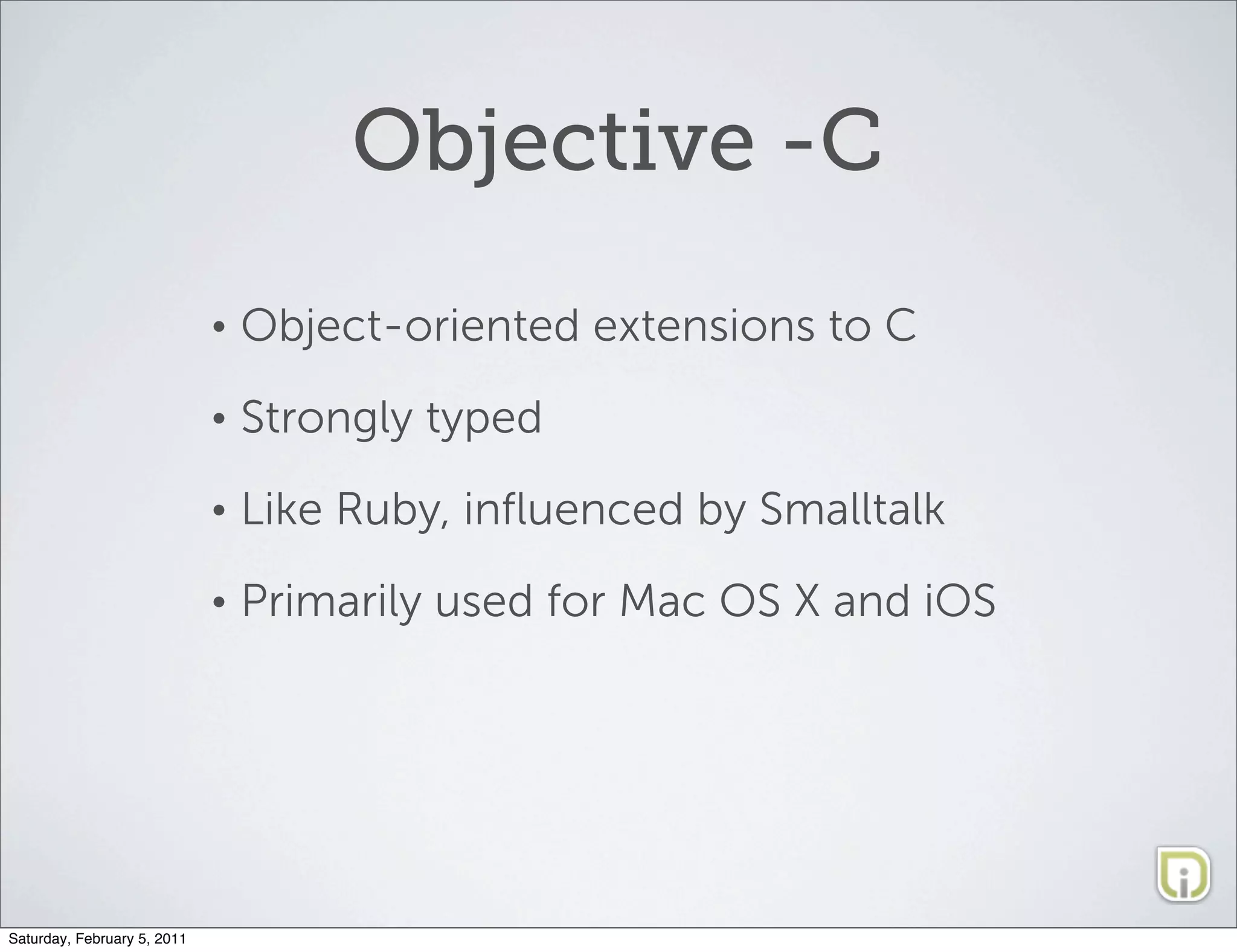
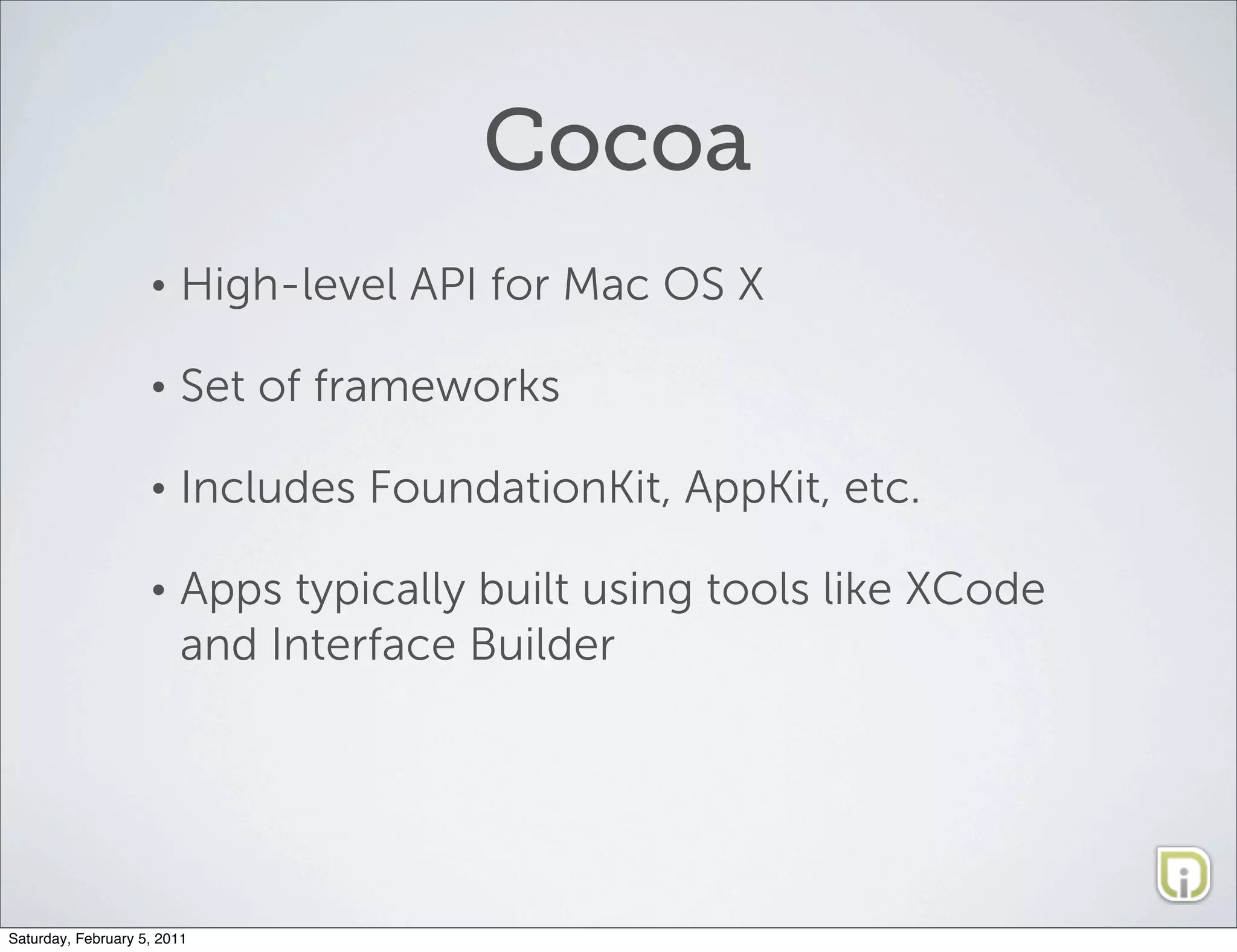

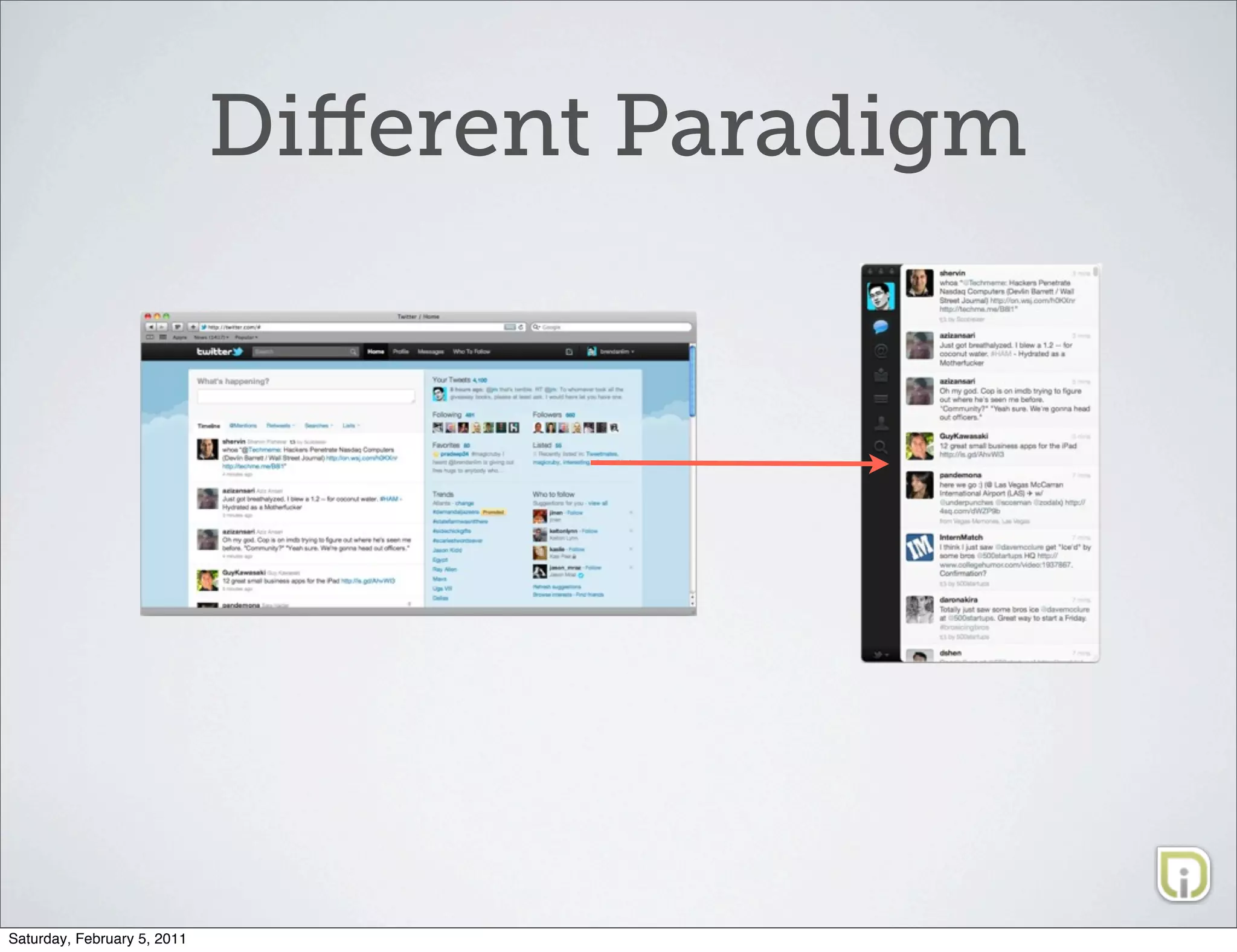
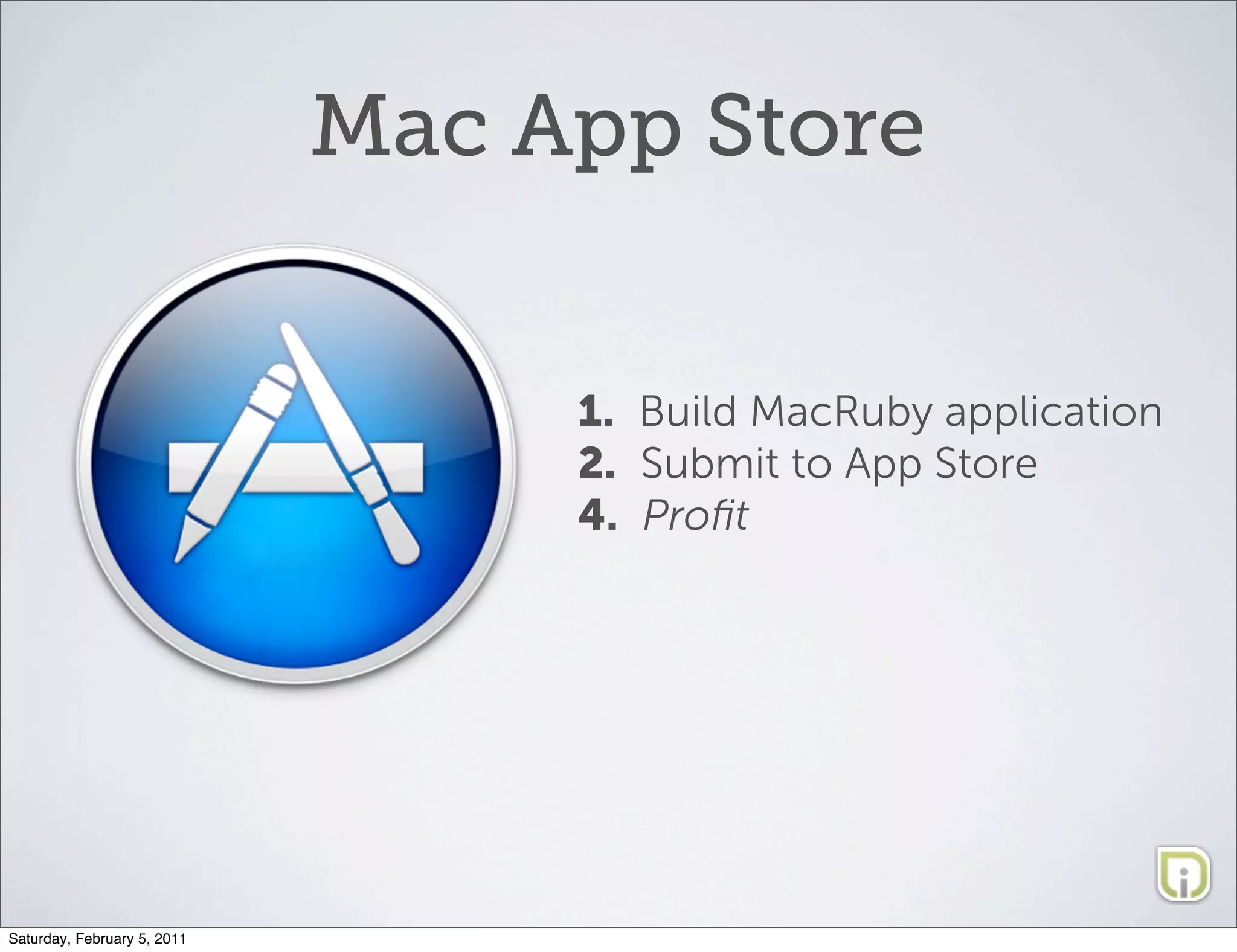
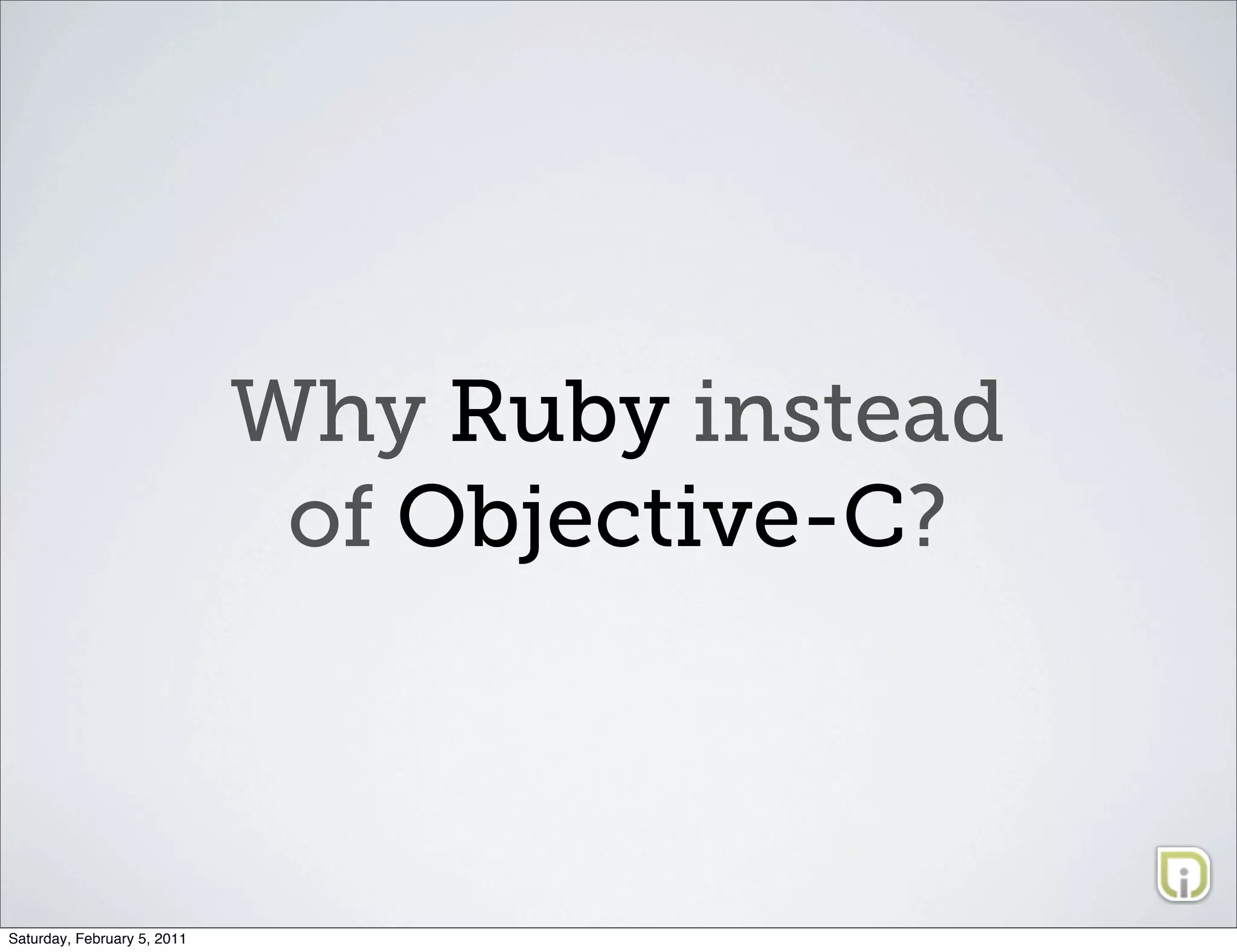
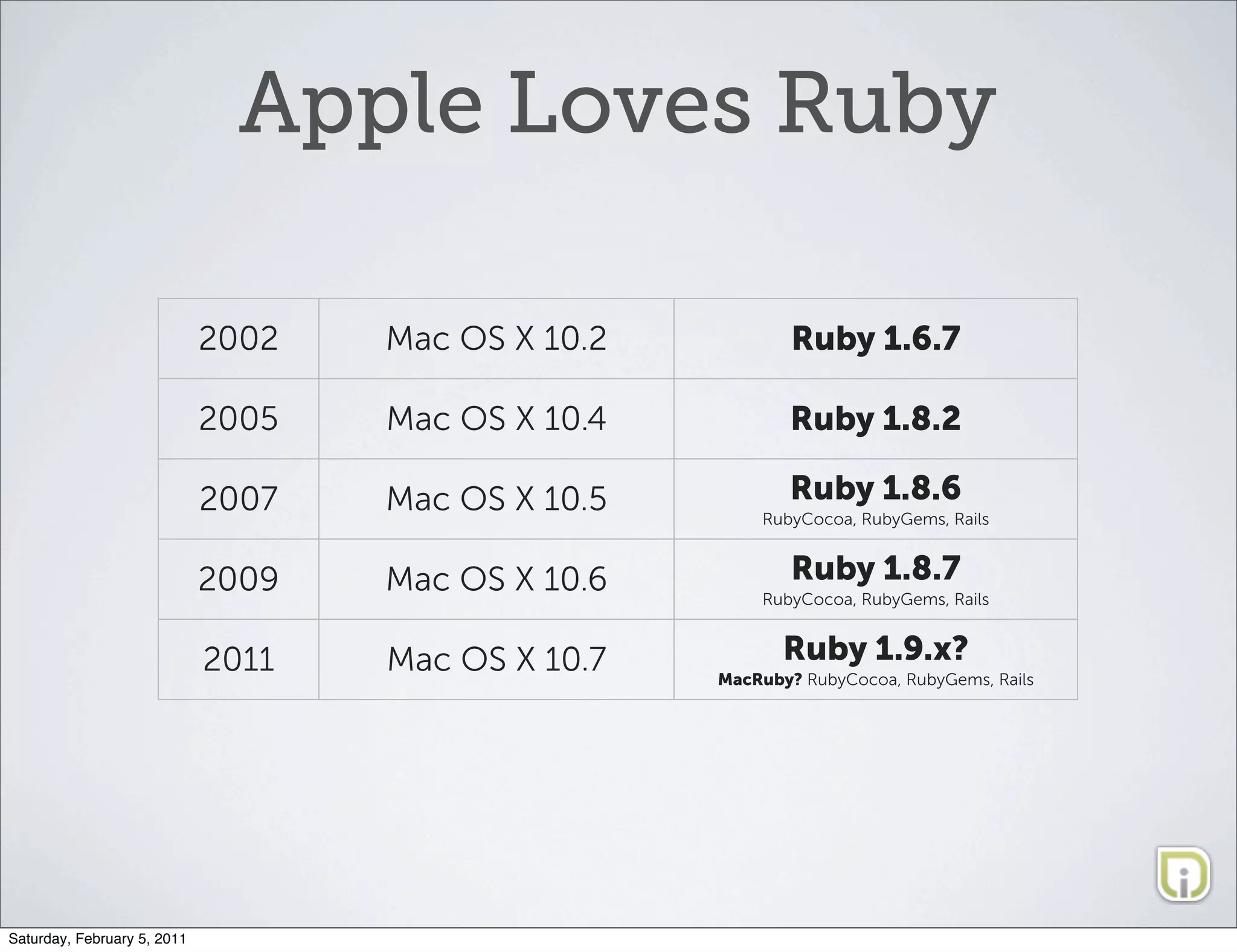
![Ruby vs Objective-C
object.method(param)
=
[object method:param];
Saturday, February 5, 2011](https://image.slidesharecdn.com/developingcocoaappswithmacruby-110205164102-phpapp01/75/Developing-Cocoa-Applications-with-macRuby-10-2048.jpg)
![Ruby vs Objective-C
array = []
=
NSMutableArray *array =
[[NSMutableArray alloc] init];
Saturday, February 5, 2011](https://image.slidesharecdn.com/developingcocoaappswithmacruby-110205164102-phpapp01/75/Developing-Cocoa-Applications-with-macRuby-11-2048.jpg)
![Ruby vs Objective-C
“ string”.strip
=
[@“ string” stringByTrimmingCharactersInSet:
[NSCharacterSet whitespaceAndNewlineCharacterSet]]
Saturday, February 5, 2011](https://image.slidesharecdn.com/developingcocoaappswithmacruby-110205164102-phpapp01/75/Developing-Cocoa-Applications-with-macRuby-12-2048.jpg)
![Ruby vs Objective-C
dictionary = {“key1” => “value1”, “key2” => “value2”}
=
NSArray *keys = [NSArray arrayWithObjects:@”key1”,@”key2”];
NSArray *data = [NSArray arrayWithObjects:@”value1”,@”value2”];
NSDictionary *dictionary = [NSDictionary dictionaryWithObjects:objects forKeys:keys];
Saturday, February 5, 2011](https://image.slidesharecdn.com/developingcocoaappswithmacruby-110205164102-phpapp01/75/Developing-Cocoa-Applications-with-macRuby-13-2048.jpg)
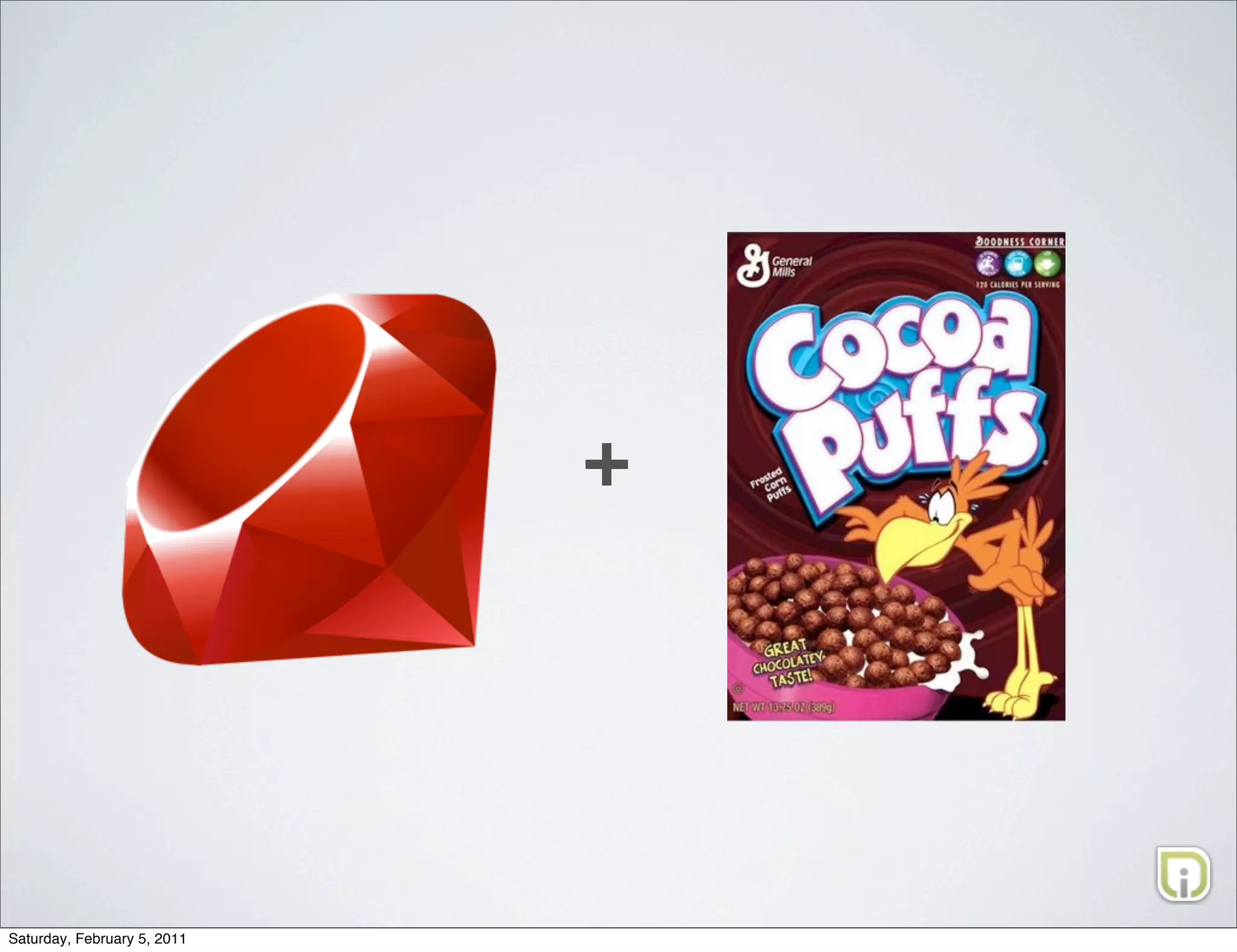
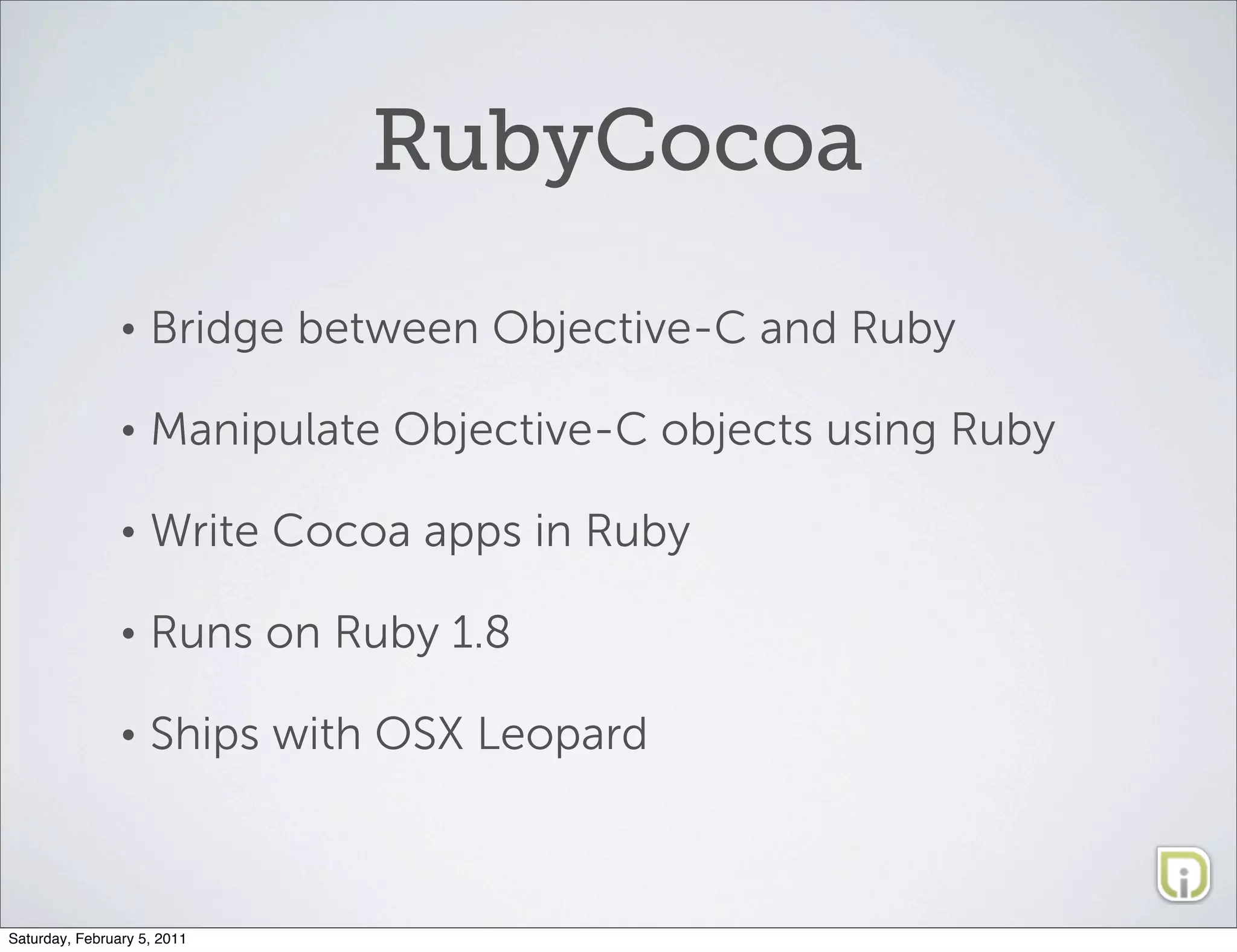
![RubyCocoa vs Objective-C
OSX::NSNotificationCenter.defaultCenter.addObserver_selector_name_object(
self,
:window_moved,
"NSWindowDidMoveNotification",
nil
)
=
[[NSNotificationCenter defaultCenter] addObserver:self,
selector:@selector(windowMoved:)
name:”NSWindowDidMoveNotification”
object:nil];
Saturday, February 5, 2011](https://image.slidesharecdn.com/developingcocoaappswithmacruby-110205164102-phpapp01/75/Developing-Cocoa-Applications-with-macRuby-16-2048.jpg)
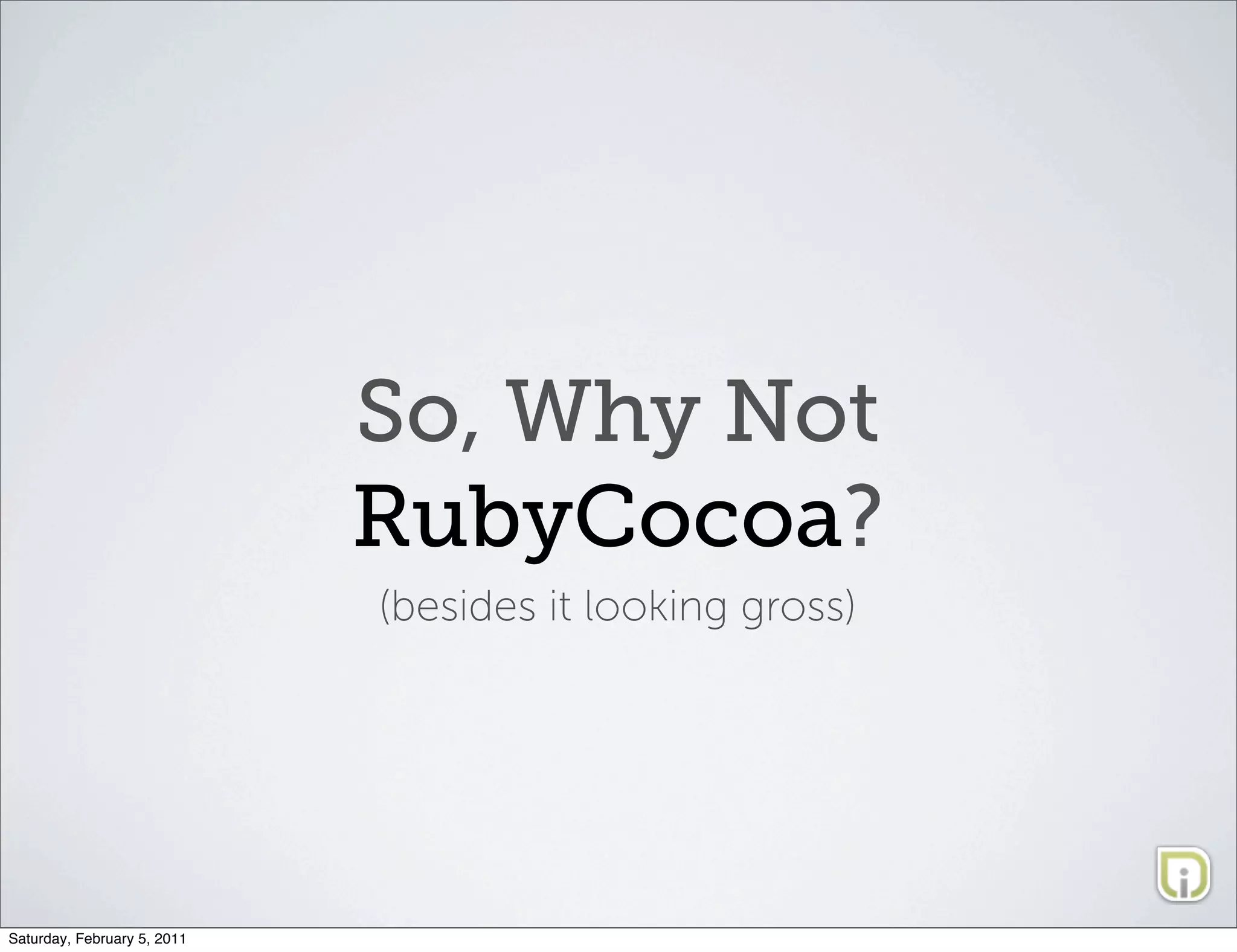
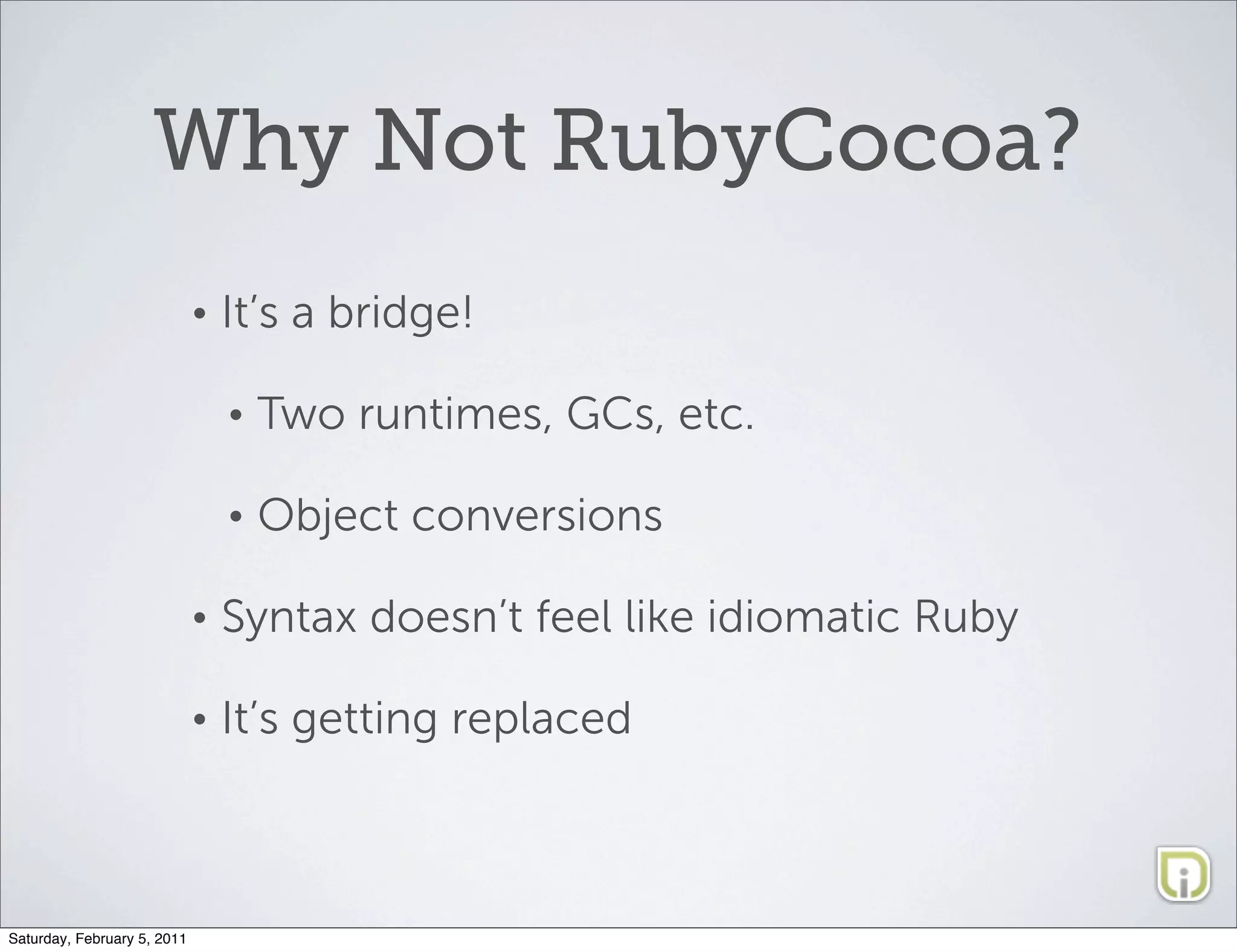
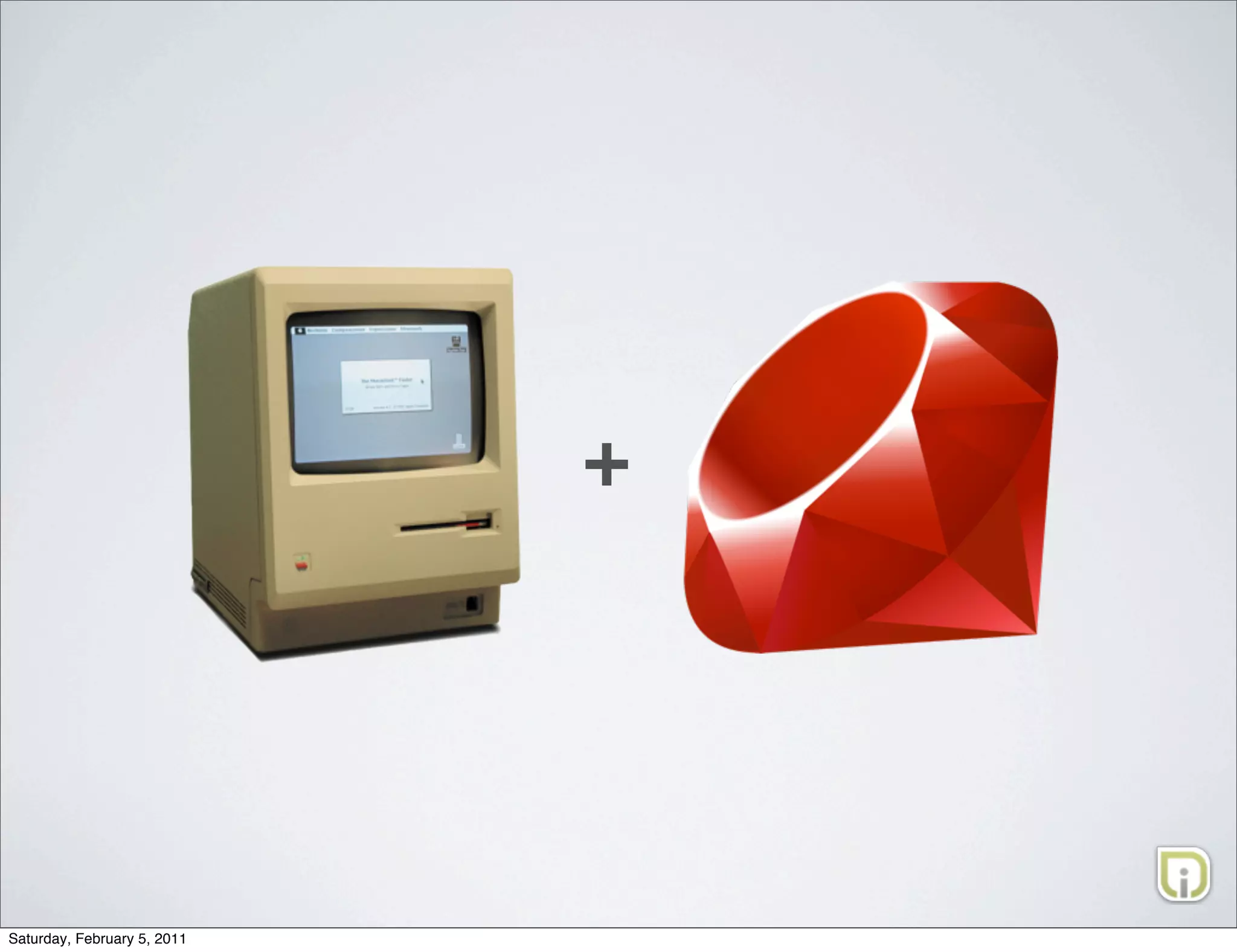
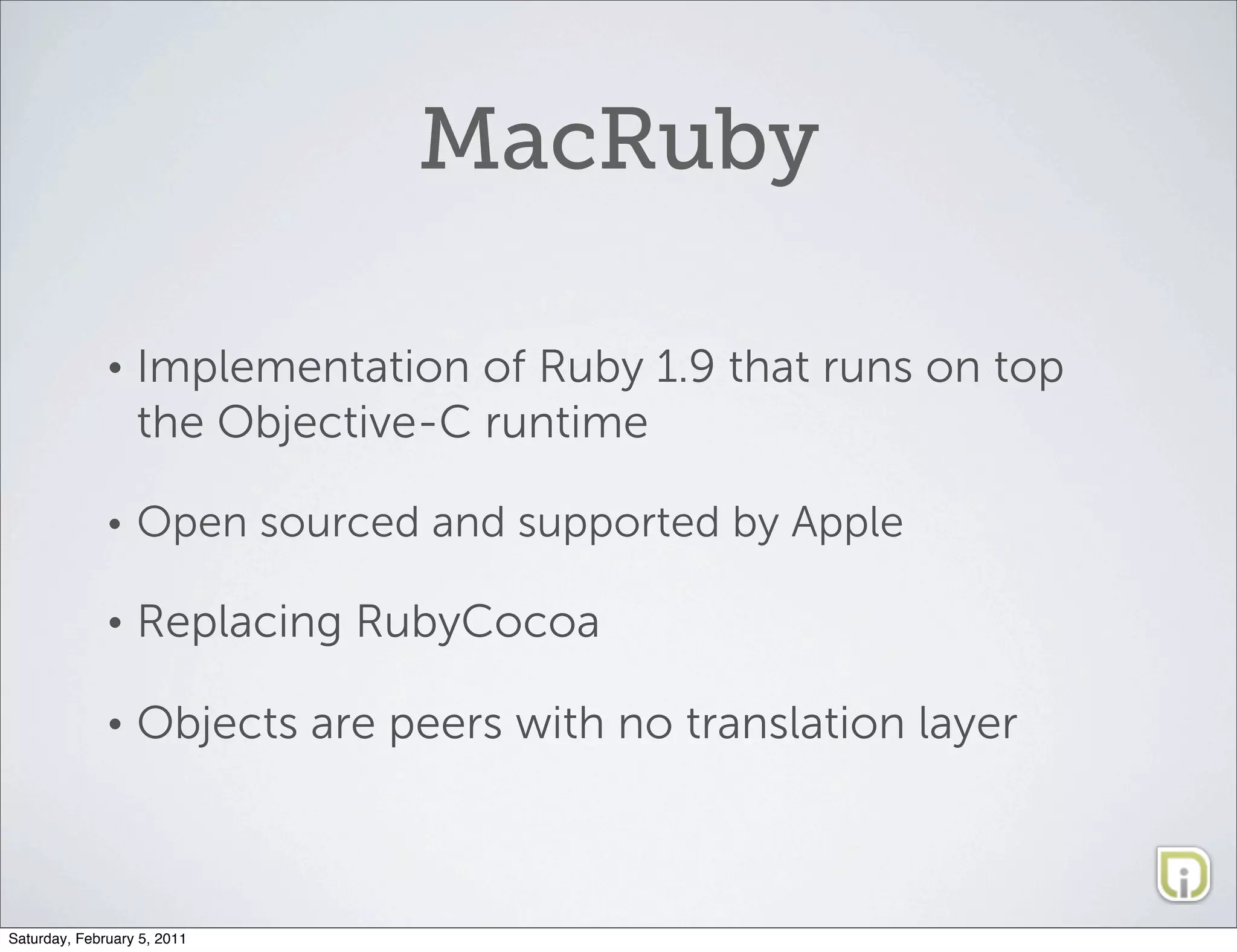
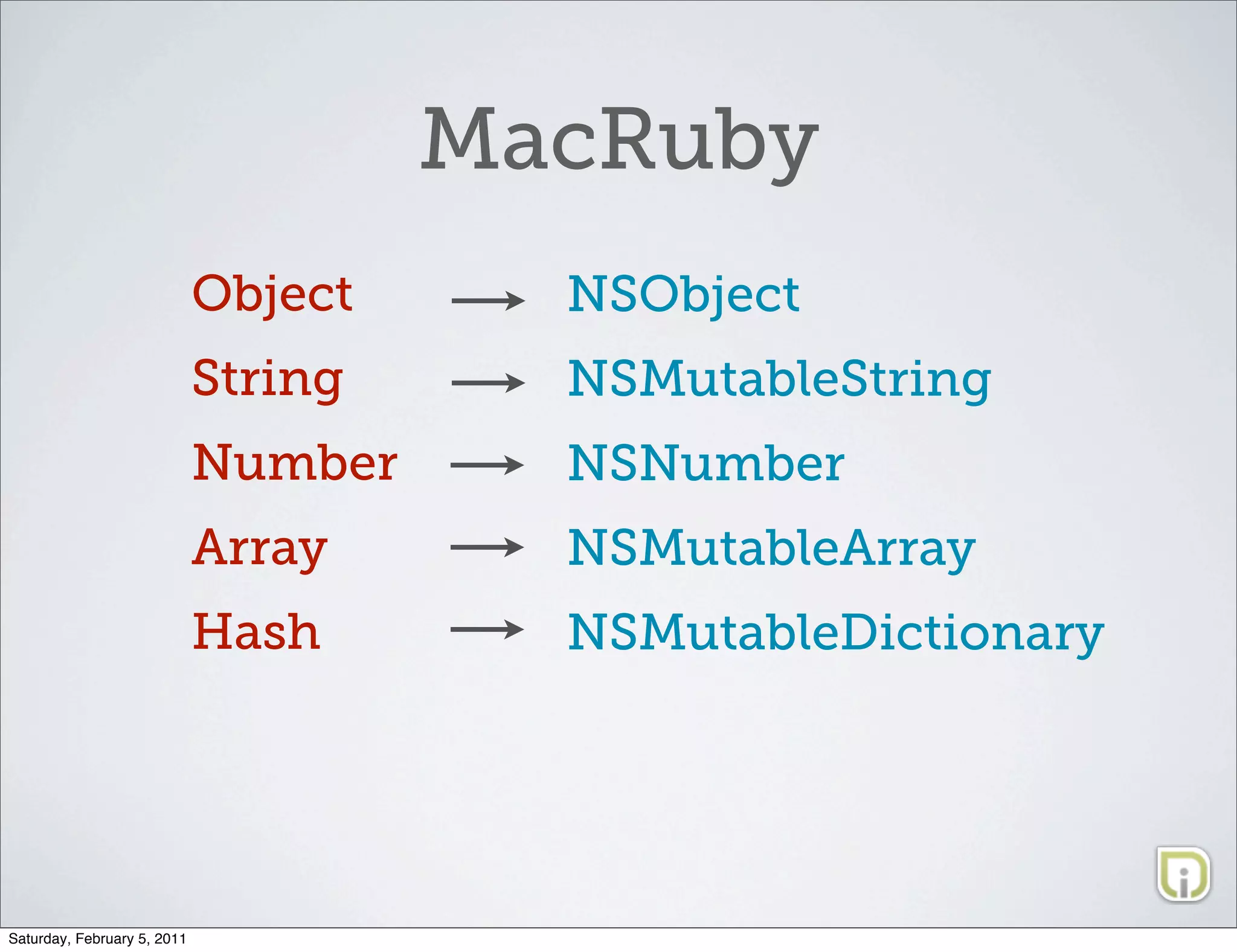
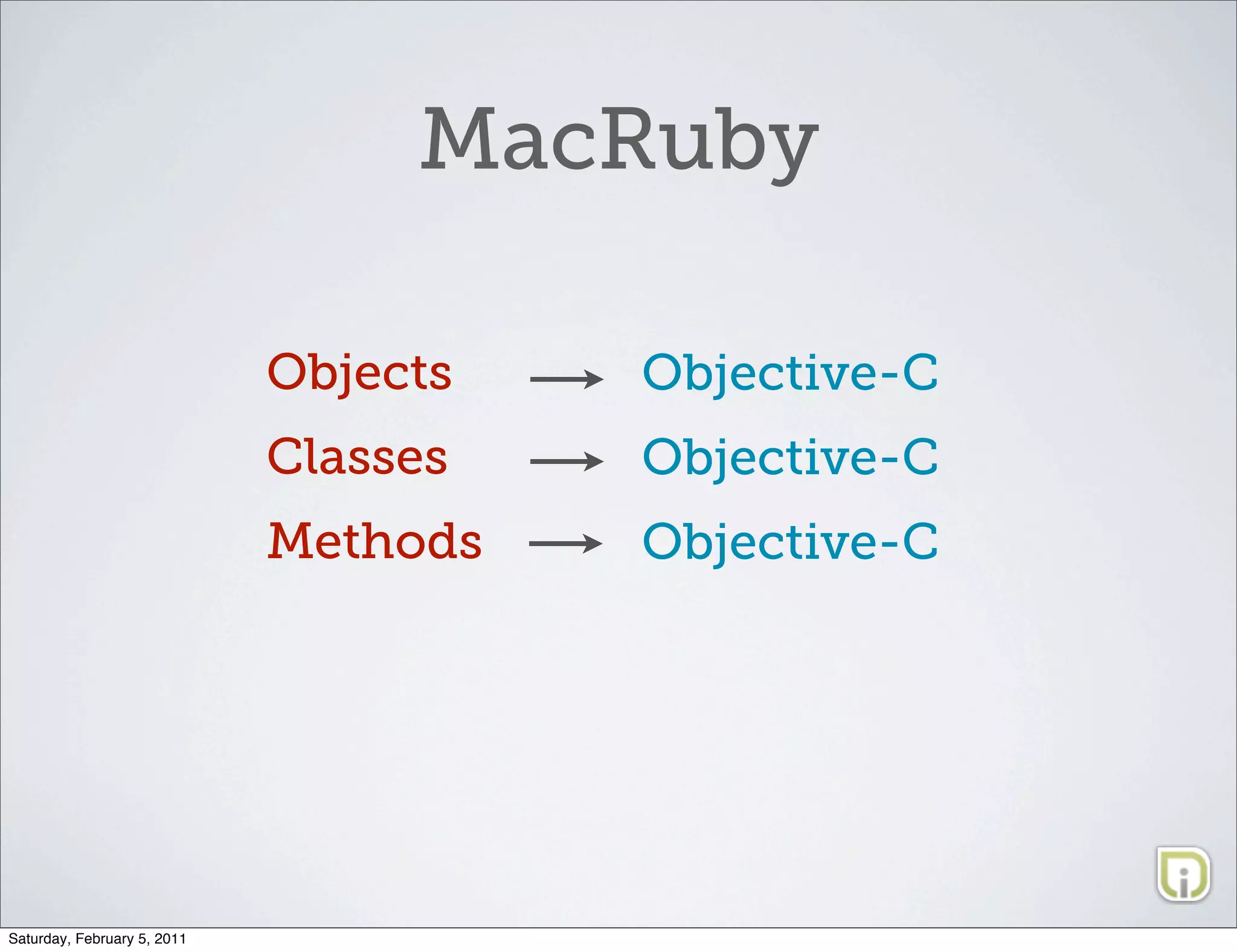
![MacRuby
>> s = “magicruby”
=> “magicruby”
>> s.class
=> String
>> s.class.ancestors
=> [String,NSMutableString,NSString,Comparable,NSObject,Kernel]
>> s.upcase
=> “MAGICRUBY”
>> s.uppercaseString
=> “MAGICRUBY”
Saturday, February 5, 2011](https://image.slidesharecdn.com/developingcocoaappswithmacruby-110205164102-phpapp01/75/Developing-Cocoa-Applications-with-macRuby-23-2048.jpg)
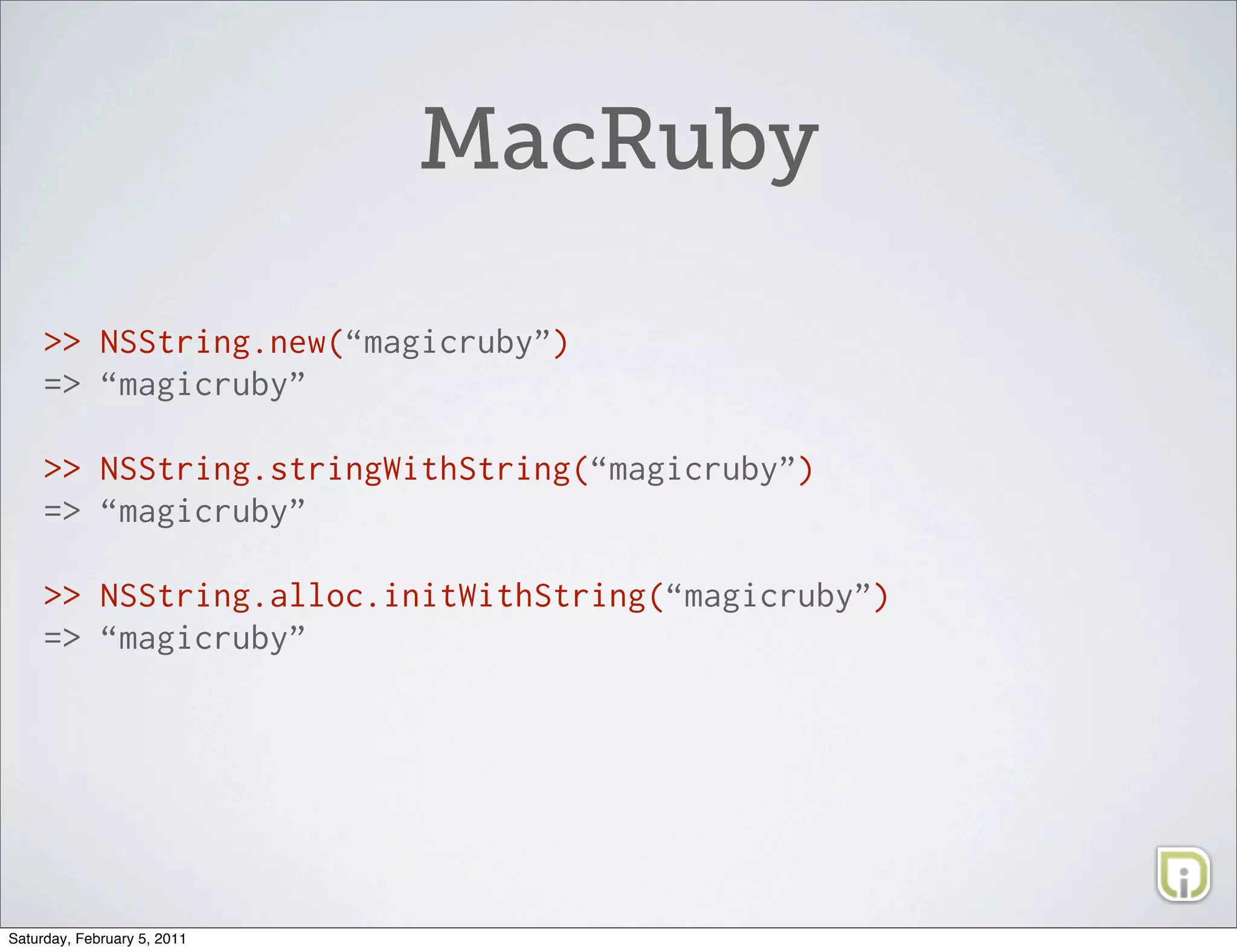
![MacRuby
>> a = []
=> []
>> a.class
=> Array
>> a.class.ancestors
=> [Array,NSMutableArray,NSArray,Enumerable,NSObject,Kernel]
>> a << “MagicRuby”
=> [“MagicRuby”]
Saturday, February 5, 2011](https://image.slidesharecdn.com/developingcocoaappswithmacruby-110205164102-phpapp01/75/Developing-Cocoa-Applications-with-macRuby-25-2048.jpg)
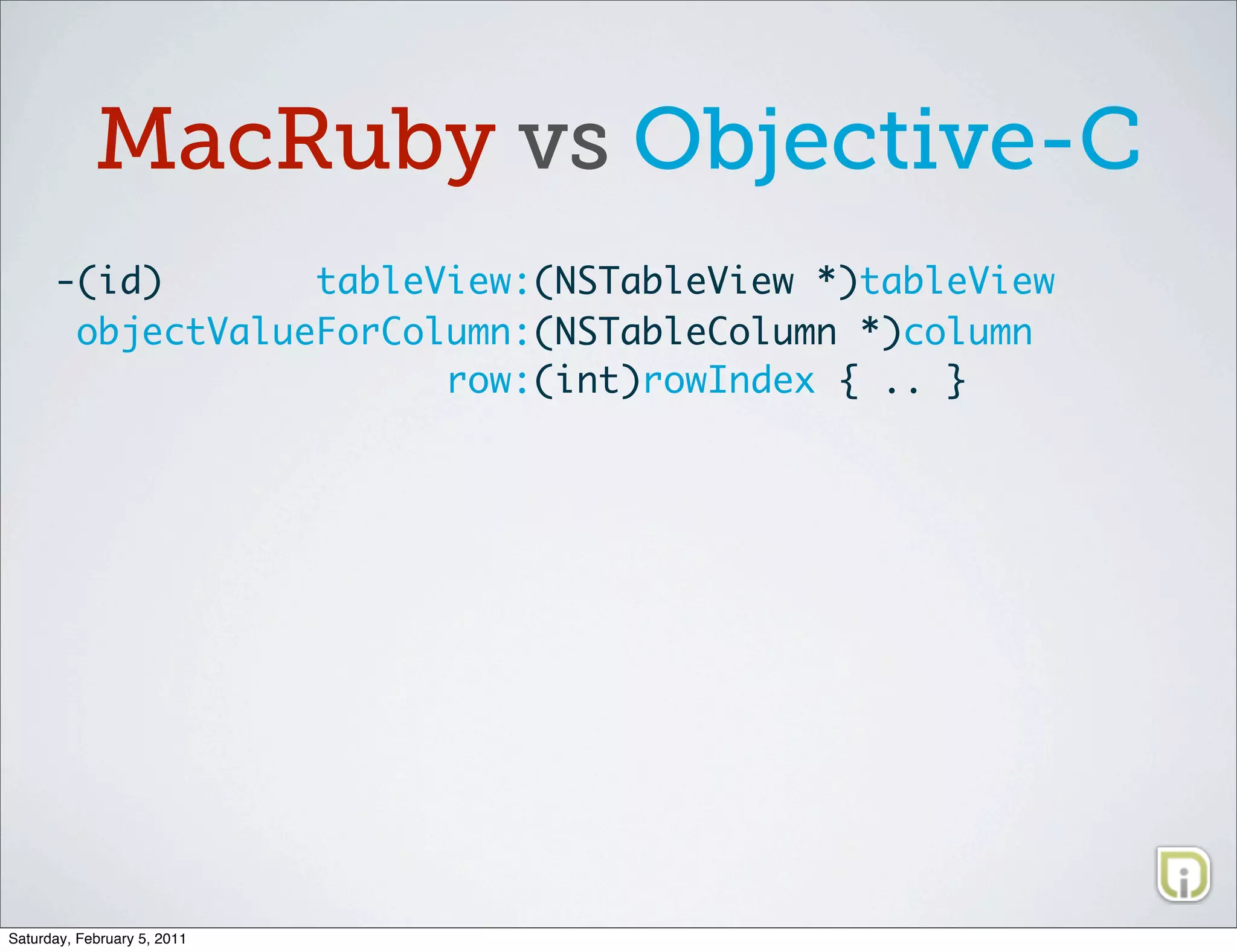
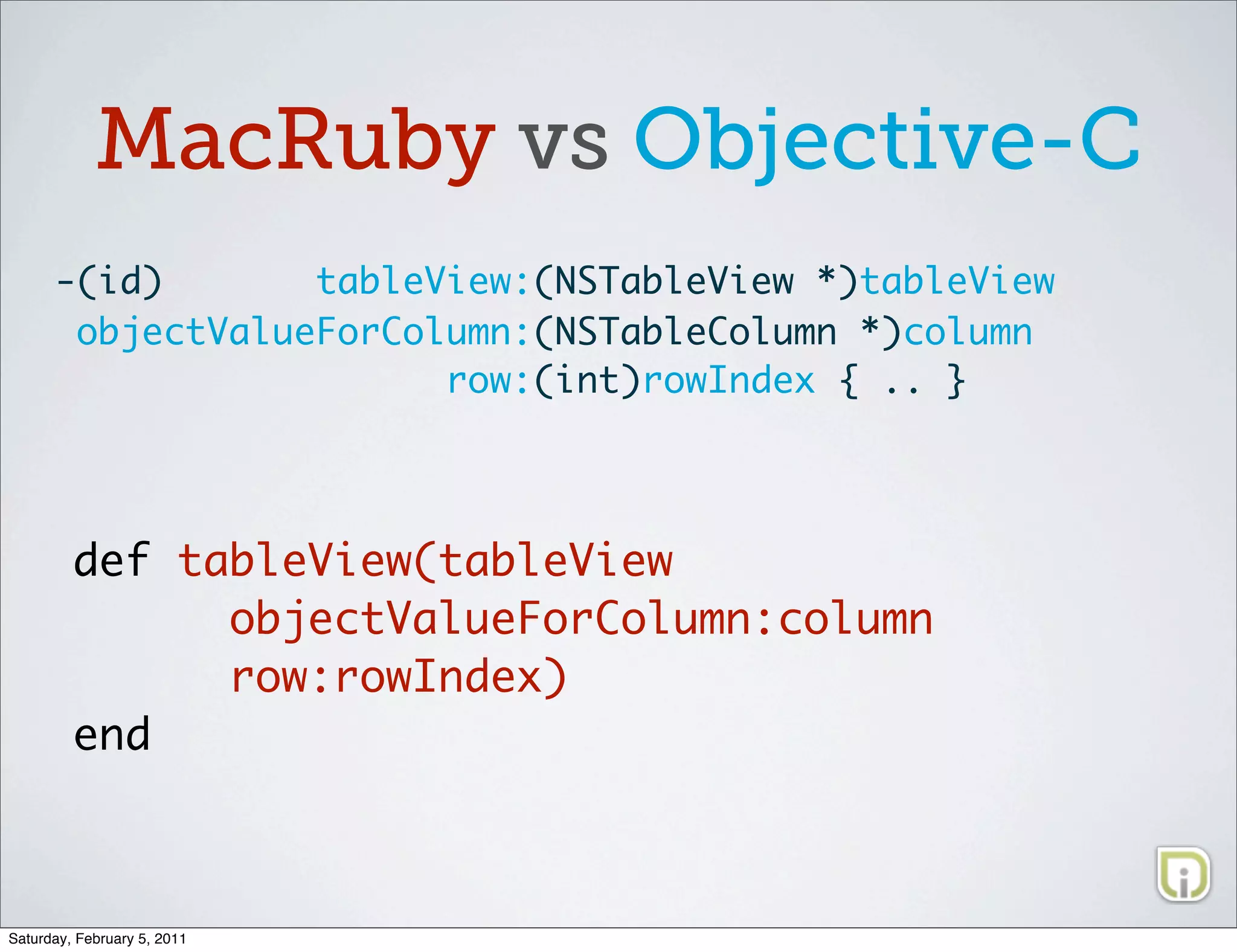
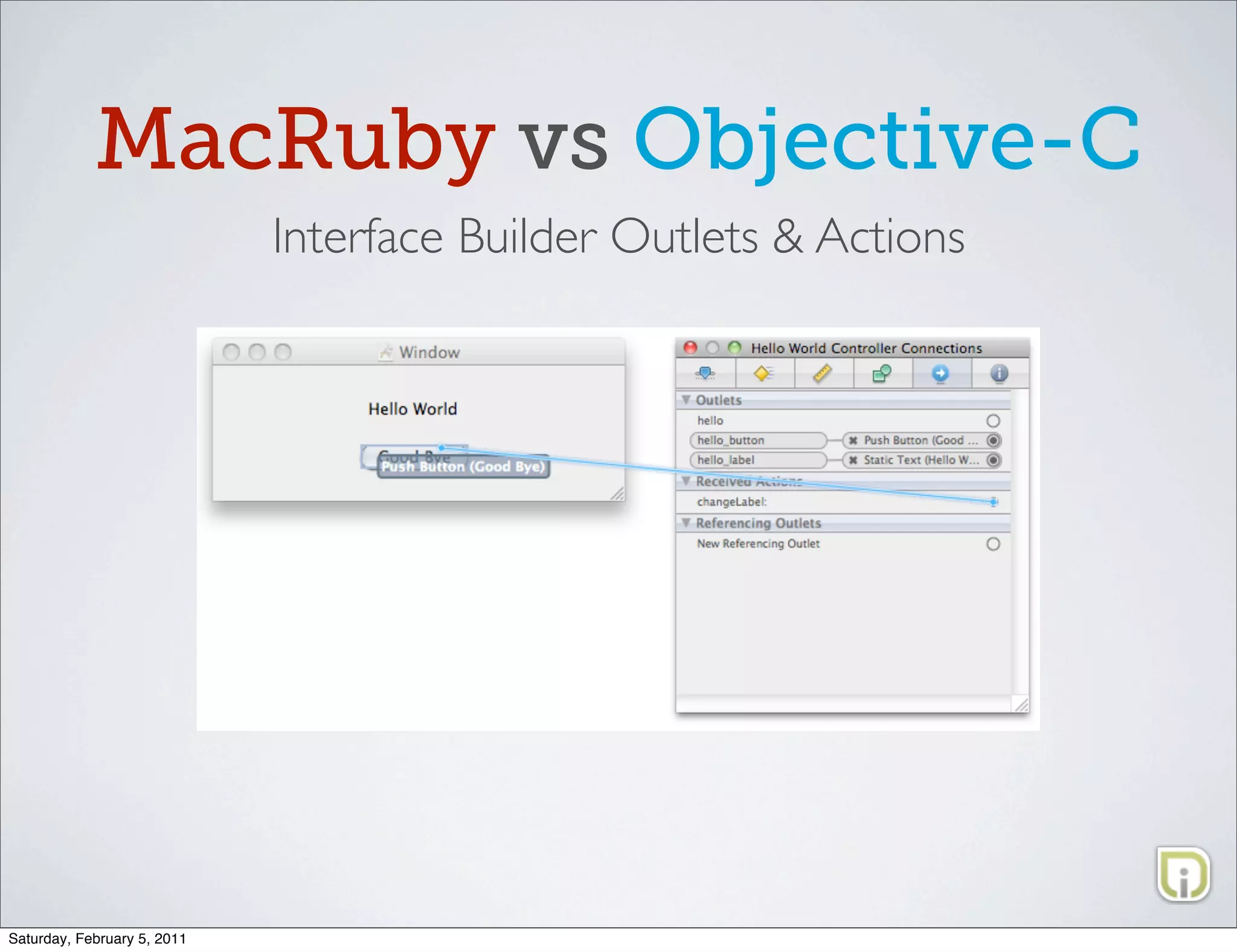
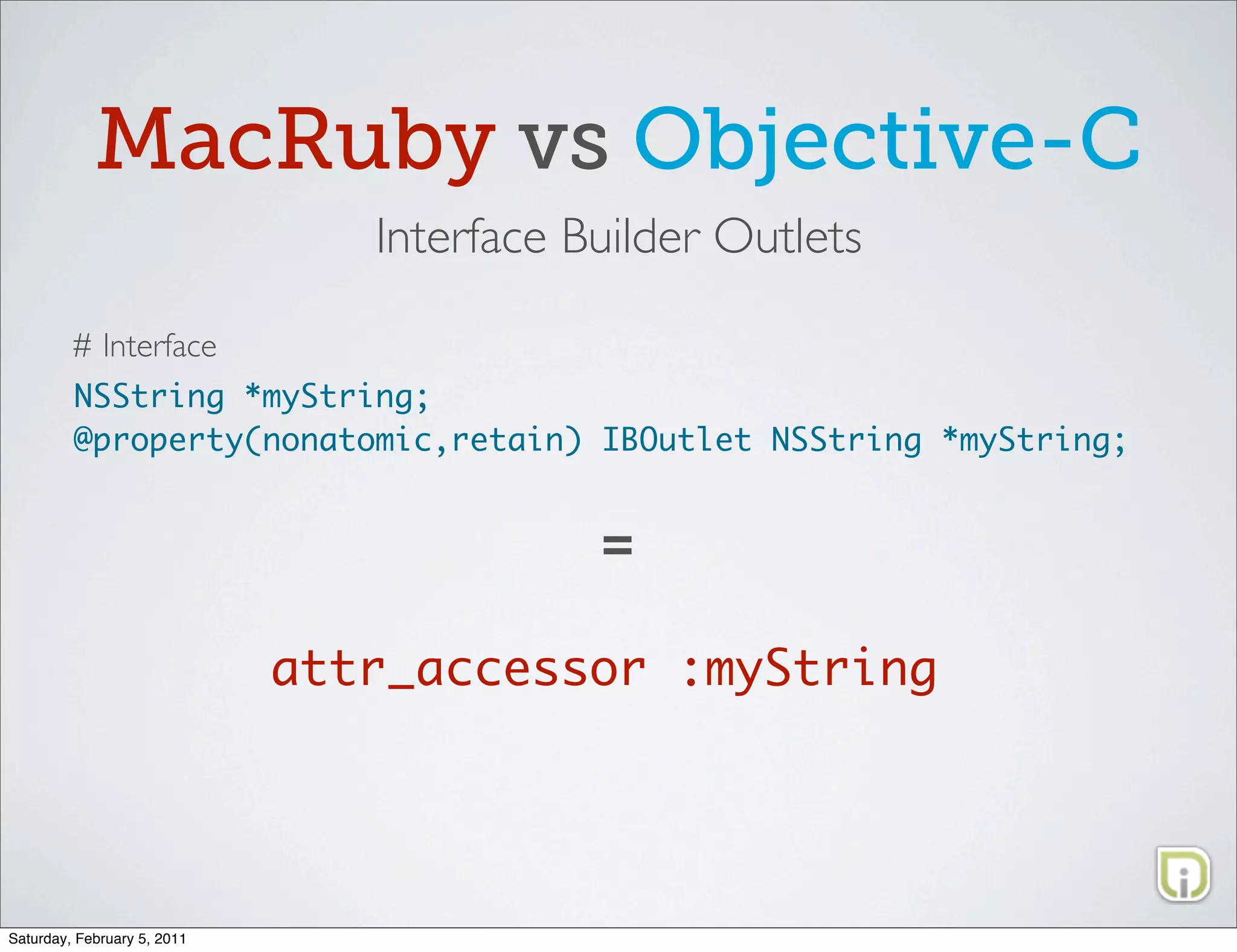
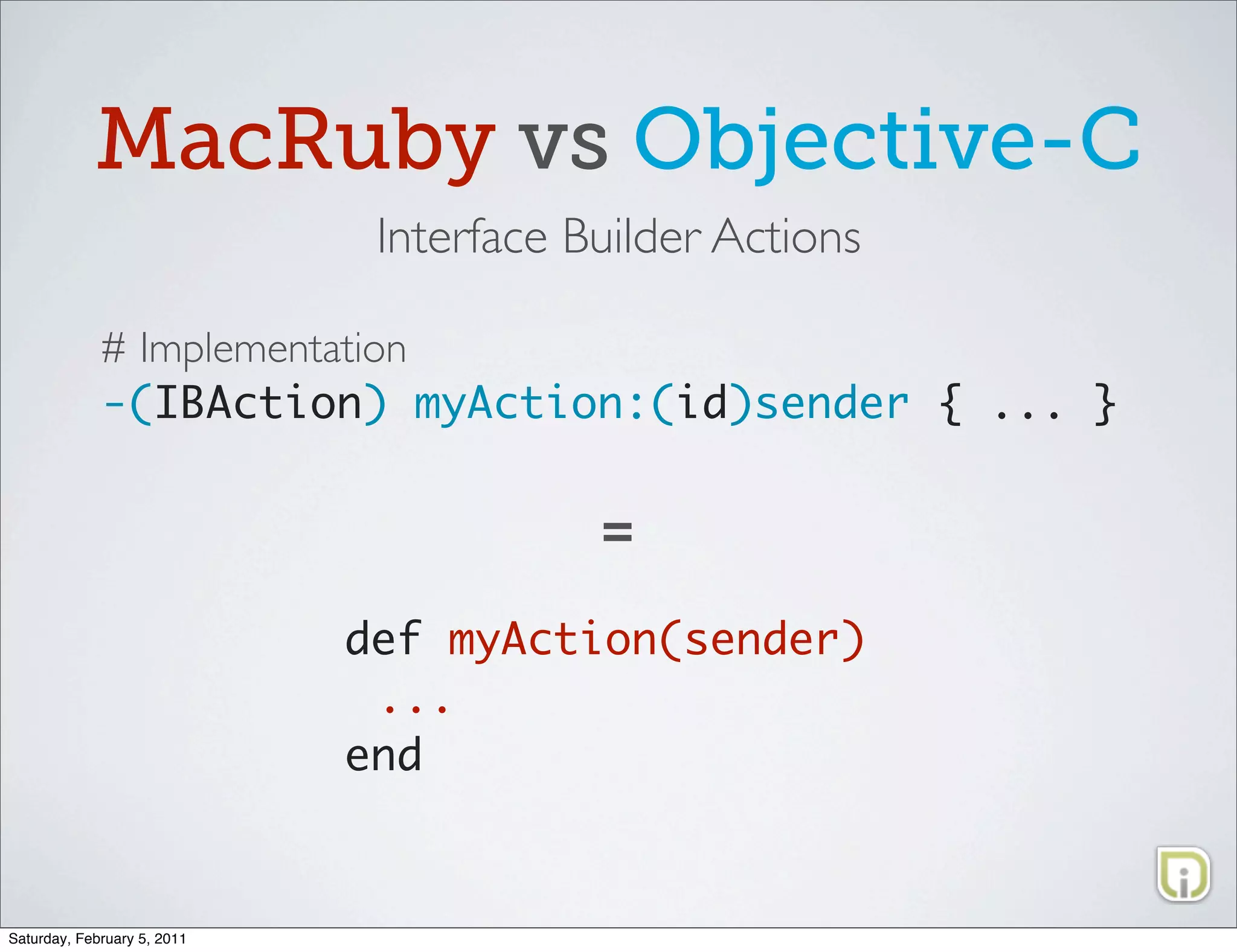
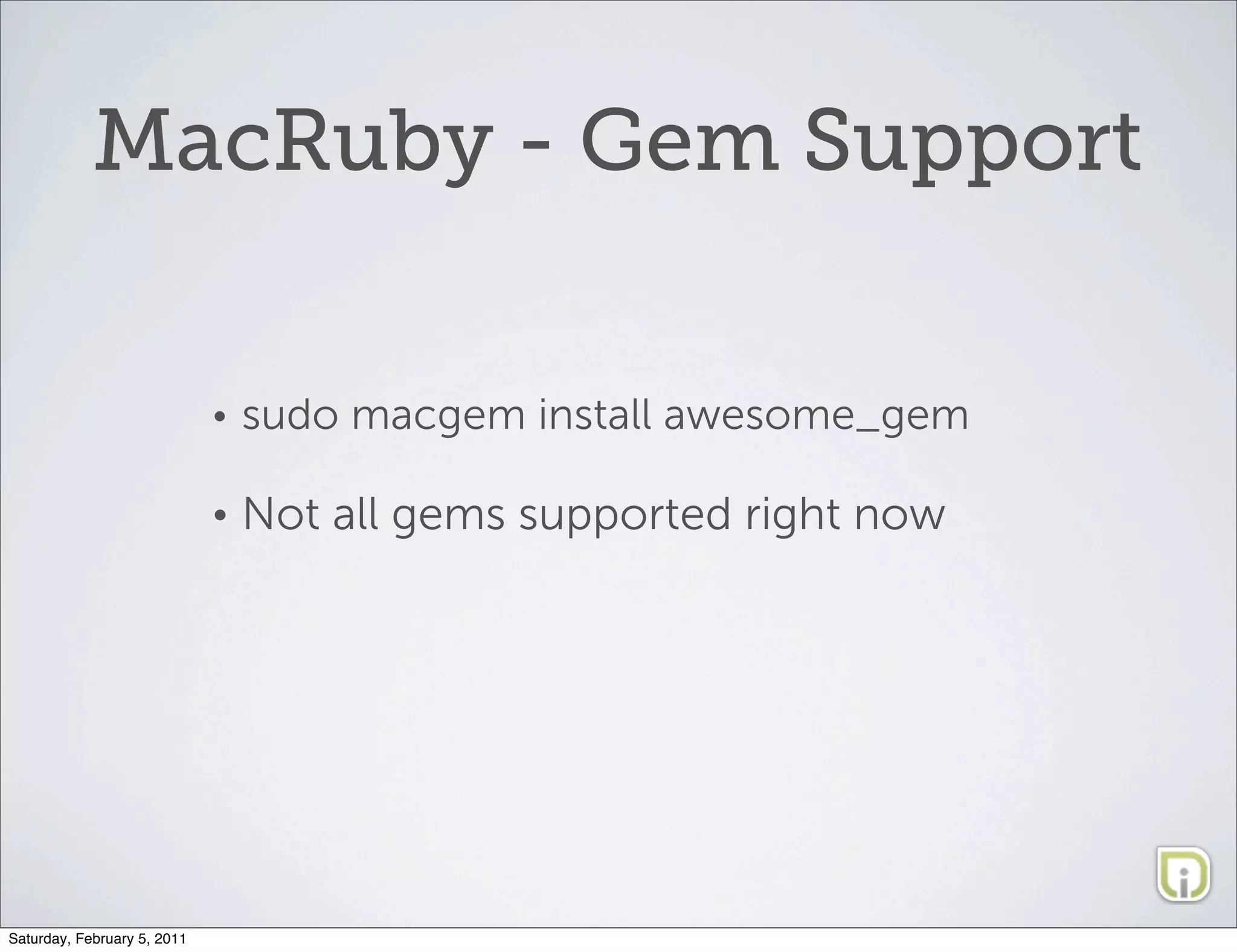
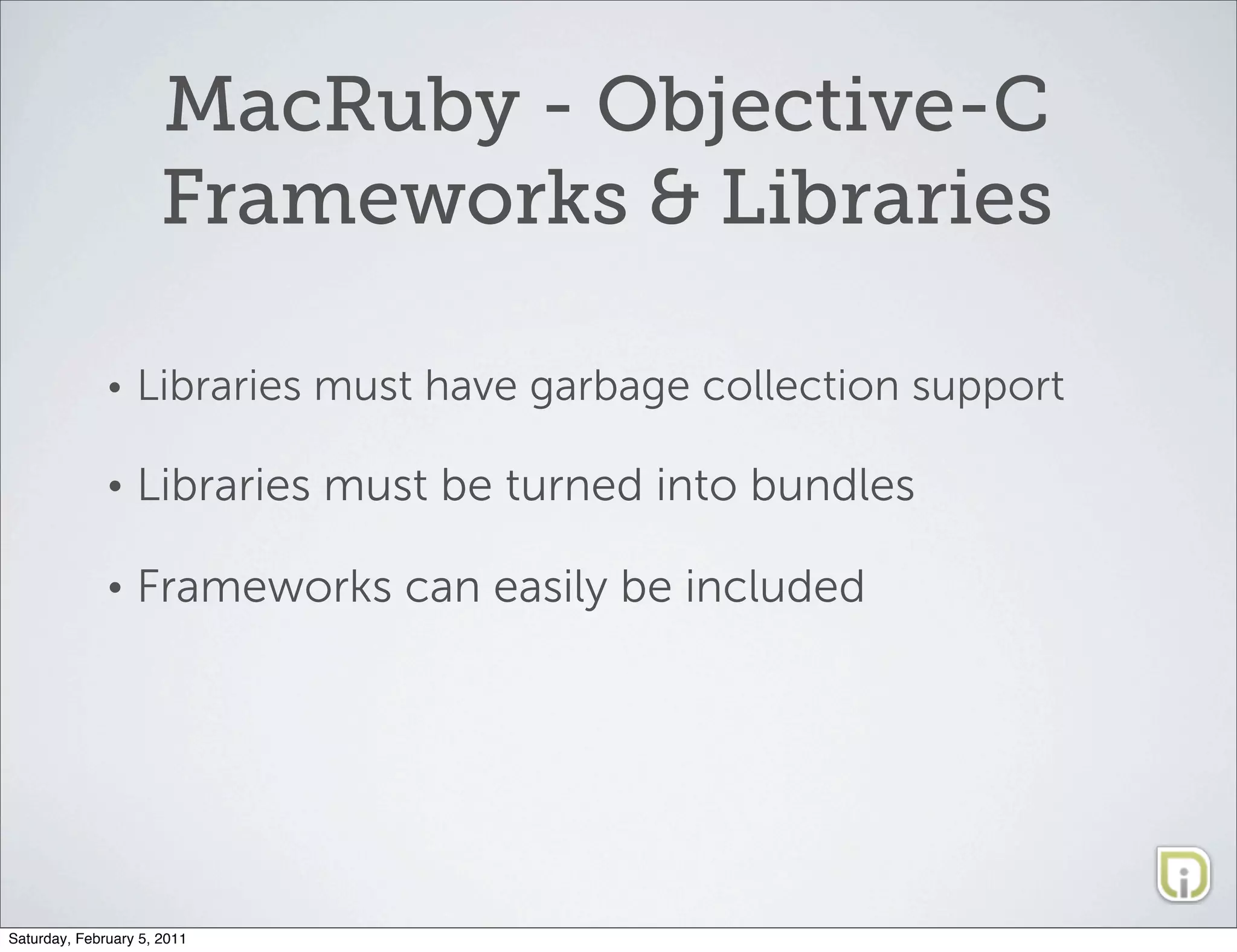
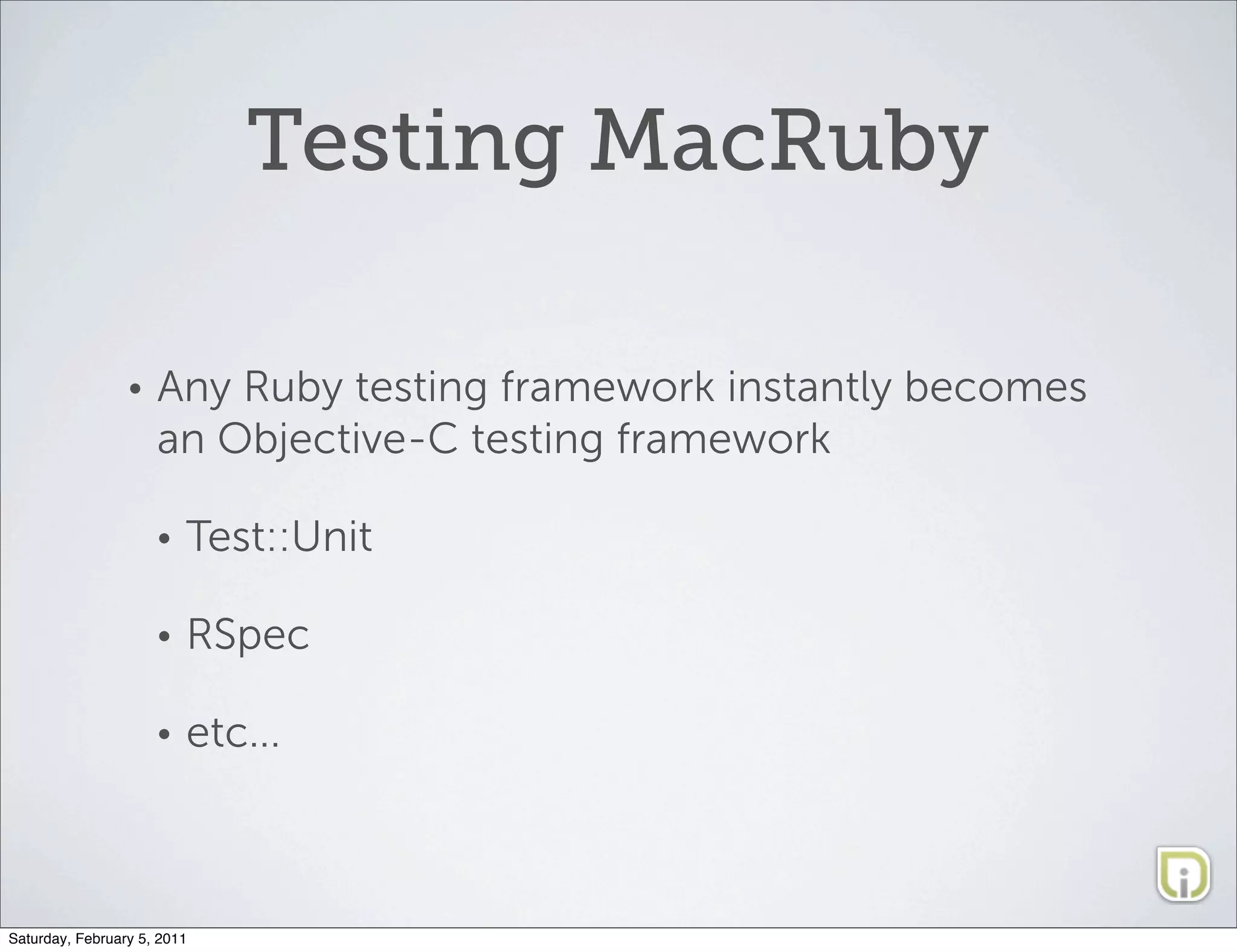

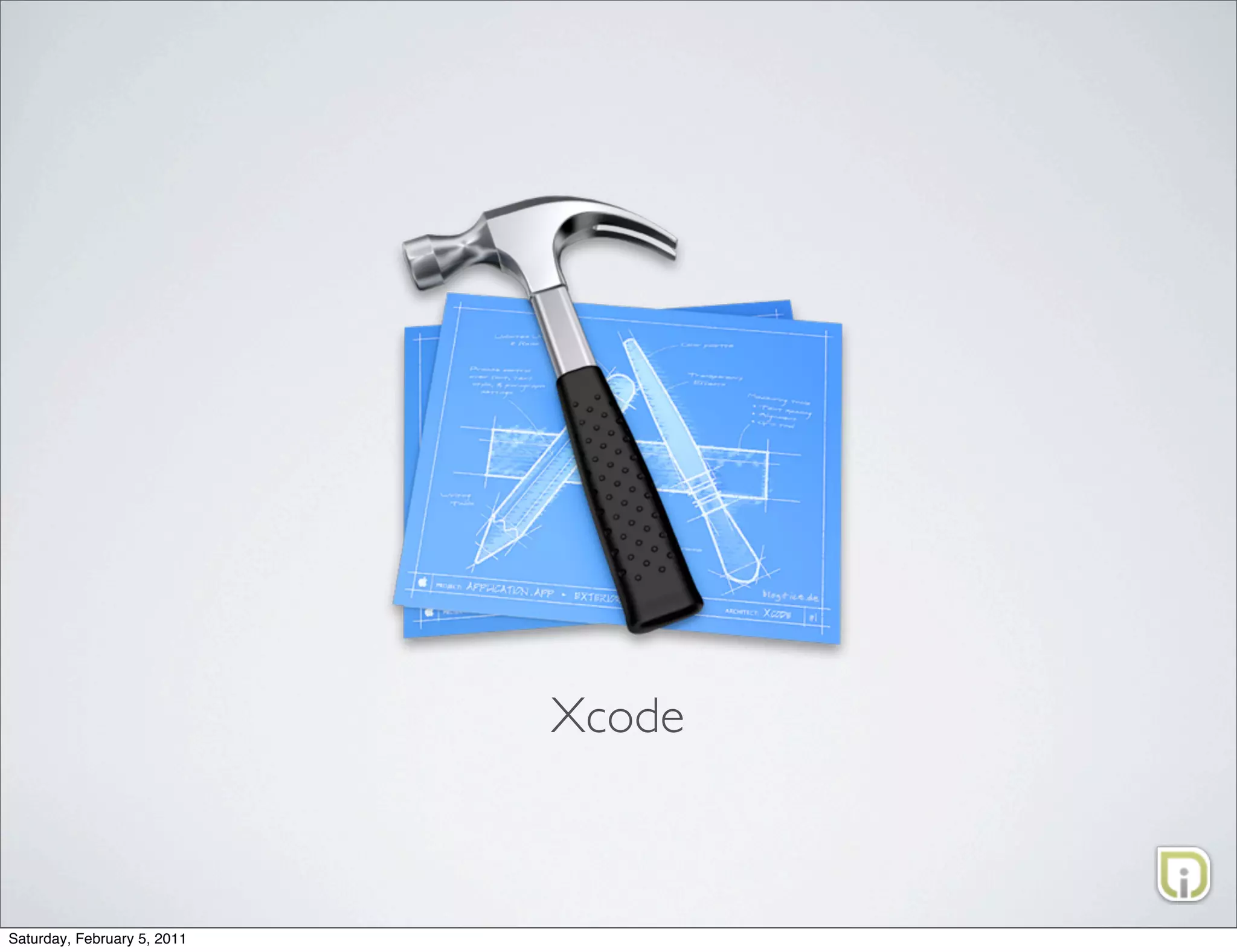
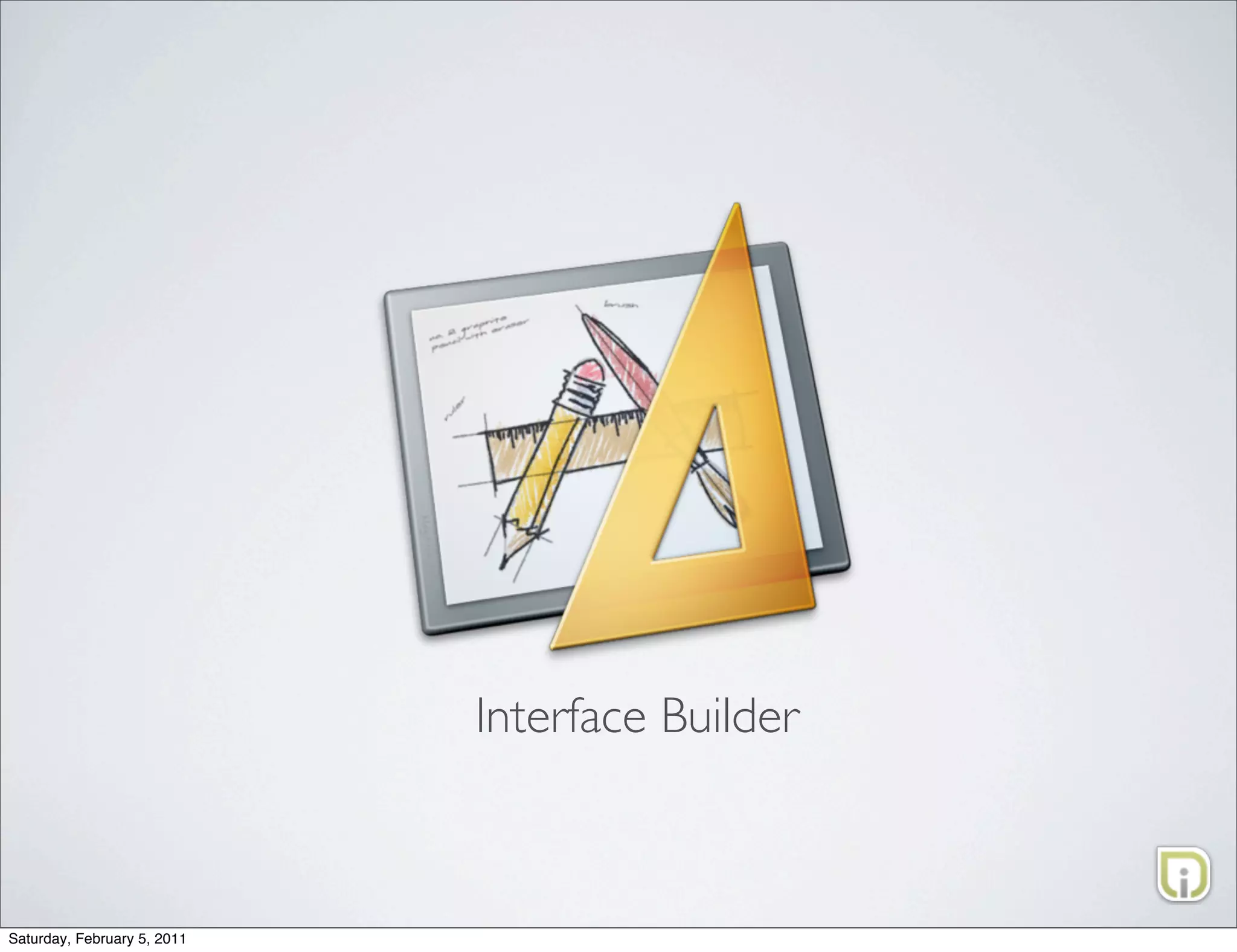
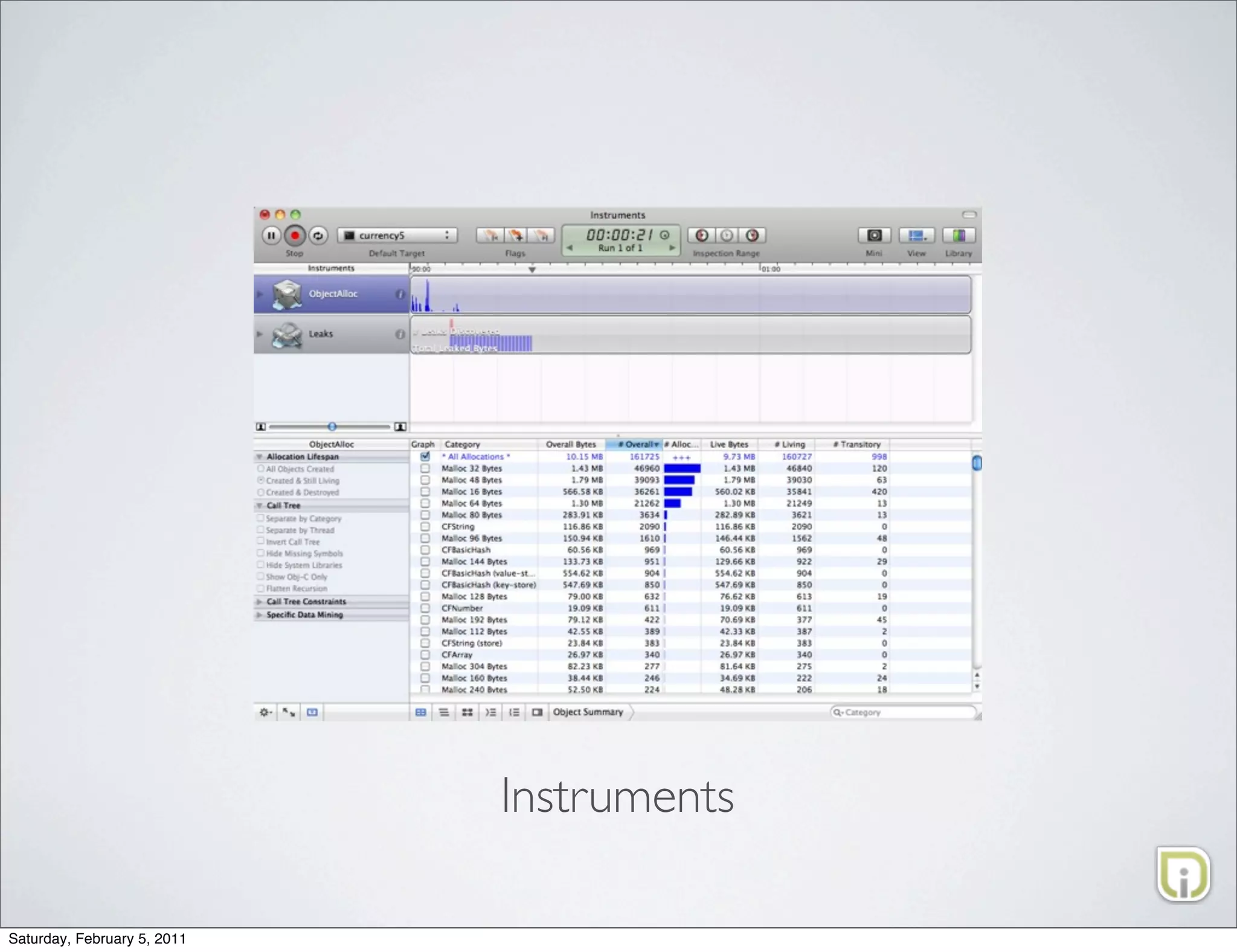
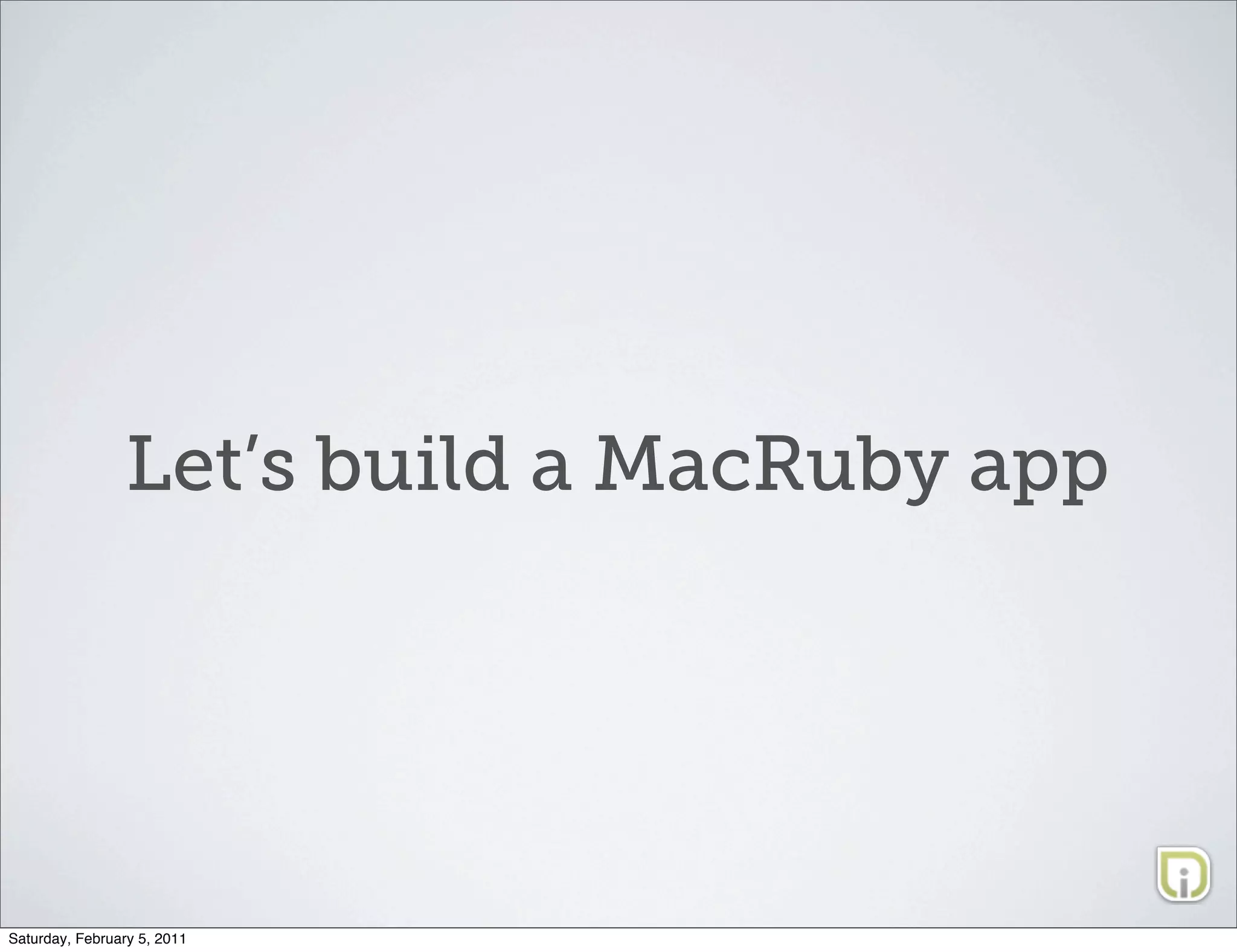
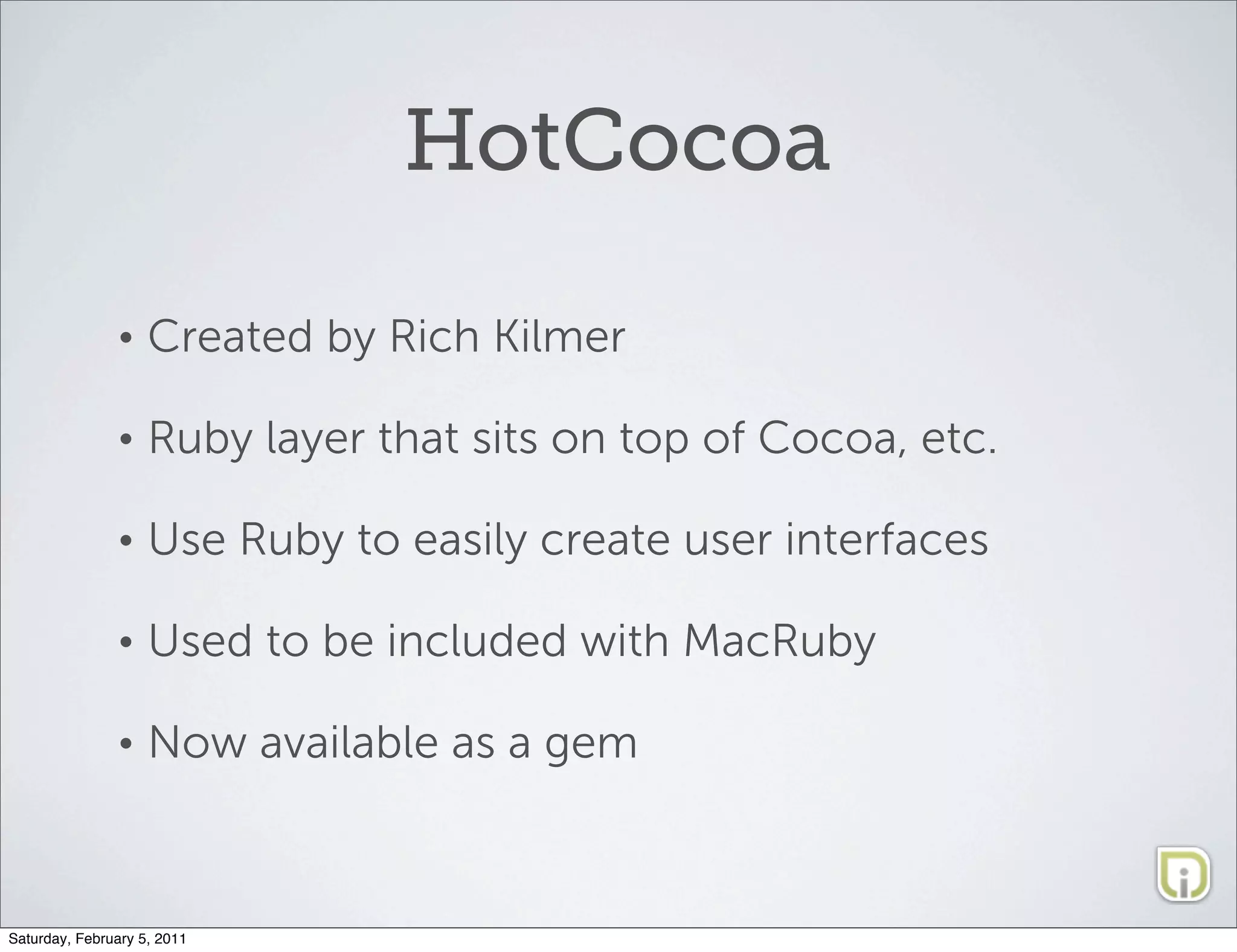
![HotCocoa
win = NSWindow.alloc.initWithContentRect([10,20,300,300],
styleMask: (NSTitleWindowMask |
NSCloseableWindowMask |
NSMiniatureizableWindowMask |
NSResizeableWindowMask)
=
win = window :frame => [10,20,300,300]
Saturday, February 5, 2011](https://image.slidesharecdn.com/developingcocoaappswithmacruby-110205164102-phpapp01/75/Developing-Cocoa-Applications-with-macRuby-40-2048.jpg)
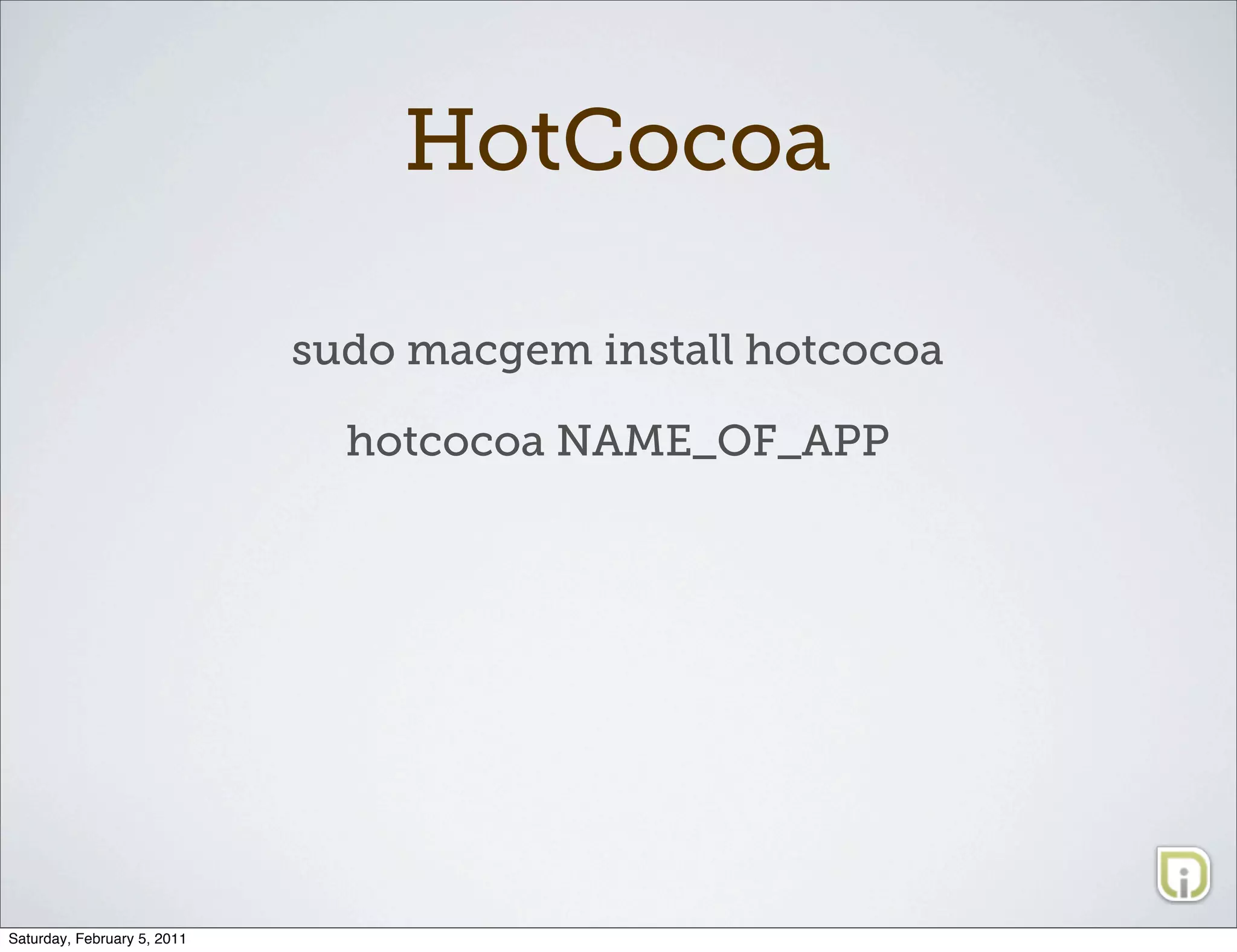
![Hello World in HotCocoa
require ‘hotcocoa’
class Application
include HotCocoa
def start
application :name => "Hello" do |app|
app.delegate = self
window :frame => [500,500,200,100], :title => "Hello" do |win|
win << label(:text => "Hello World",:layout => {:start => false})
win.will_close { exit }
end
end
end
end
Application.new.start
Saturday, February 5, 2011](https://image.slidesharecdn.com/developingcocoaappswithmacruby-110205164102-phpapp01/75/Developing-Cocoa-Applications-with-macRuby-42-2048.jpg)
